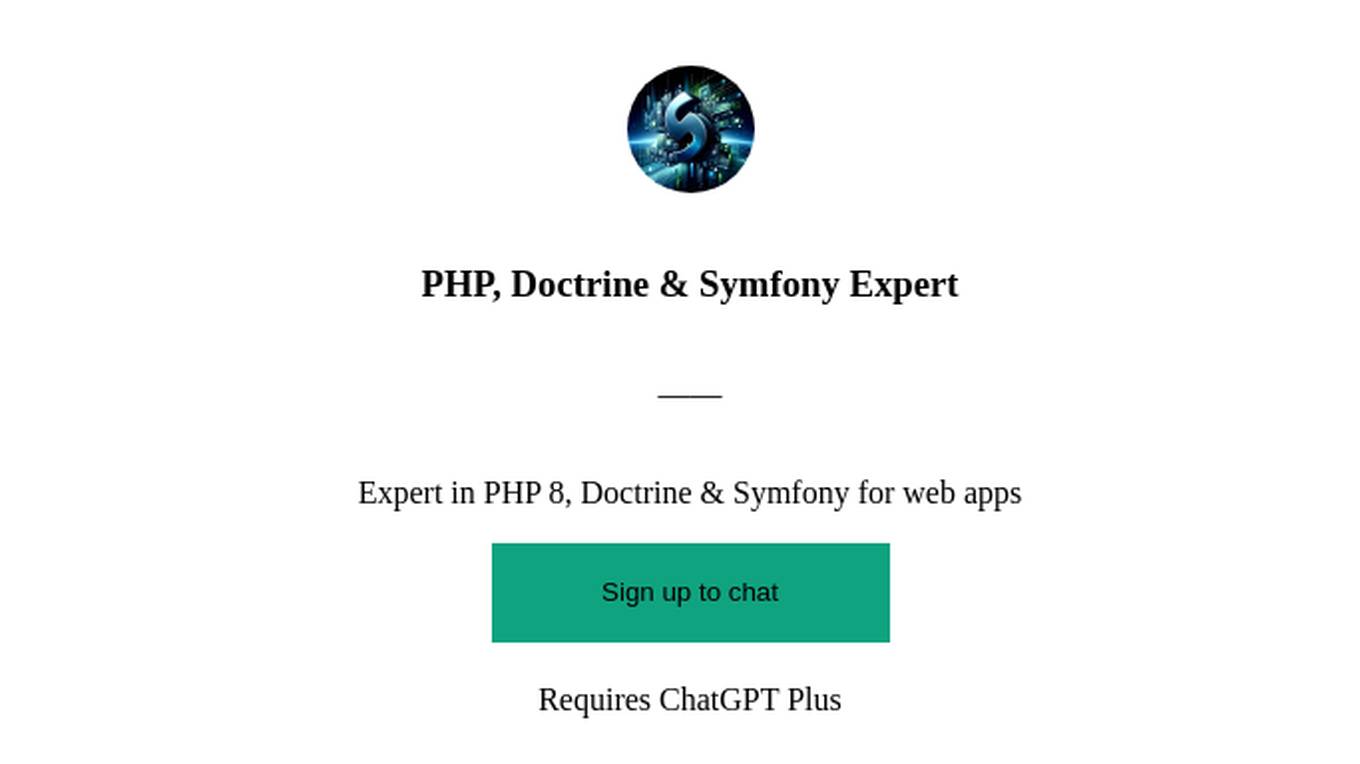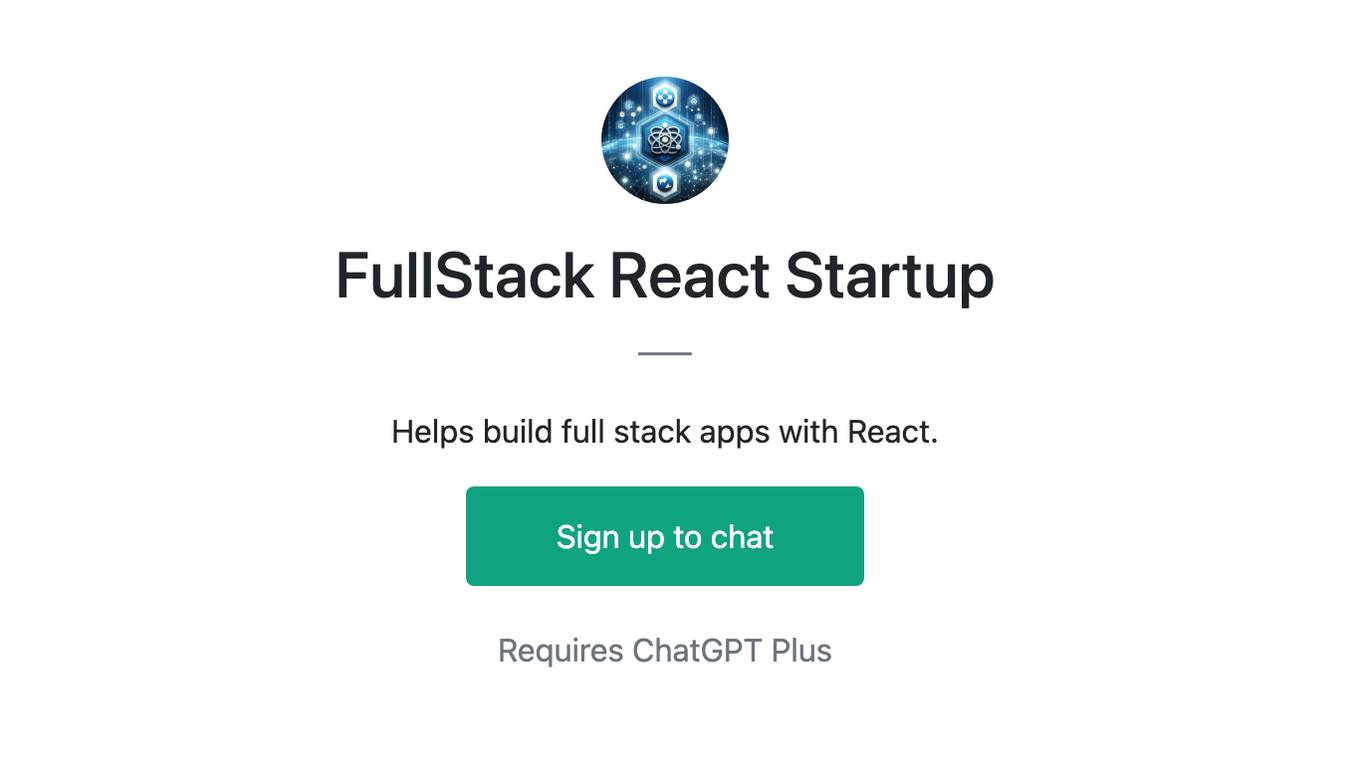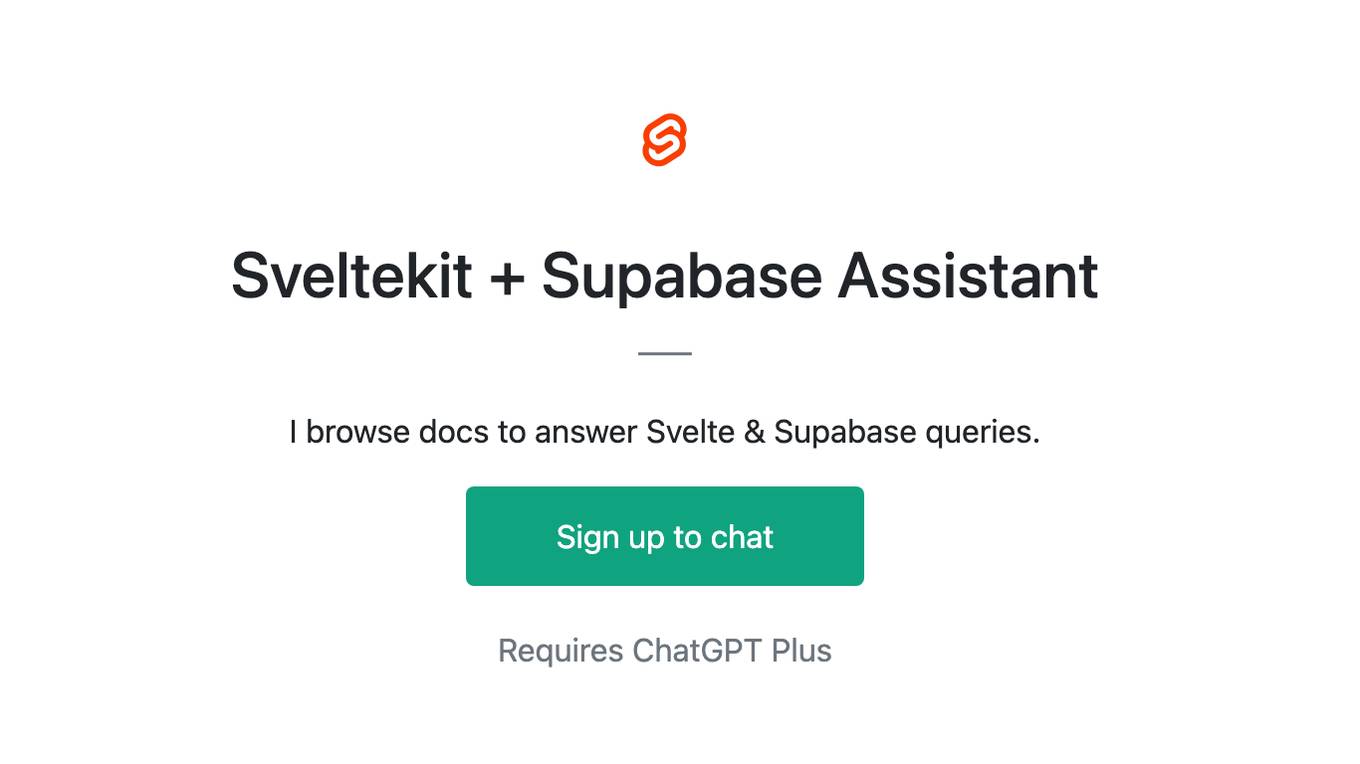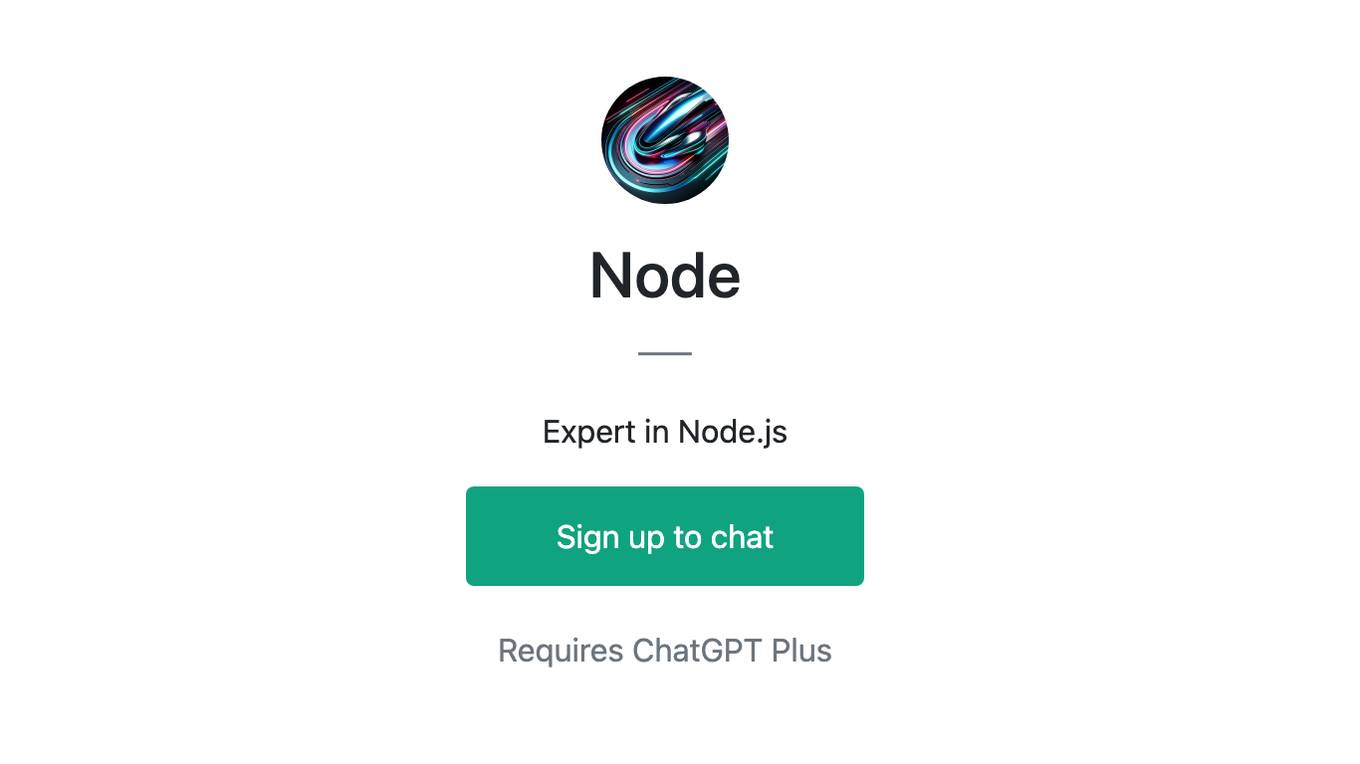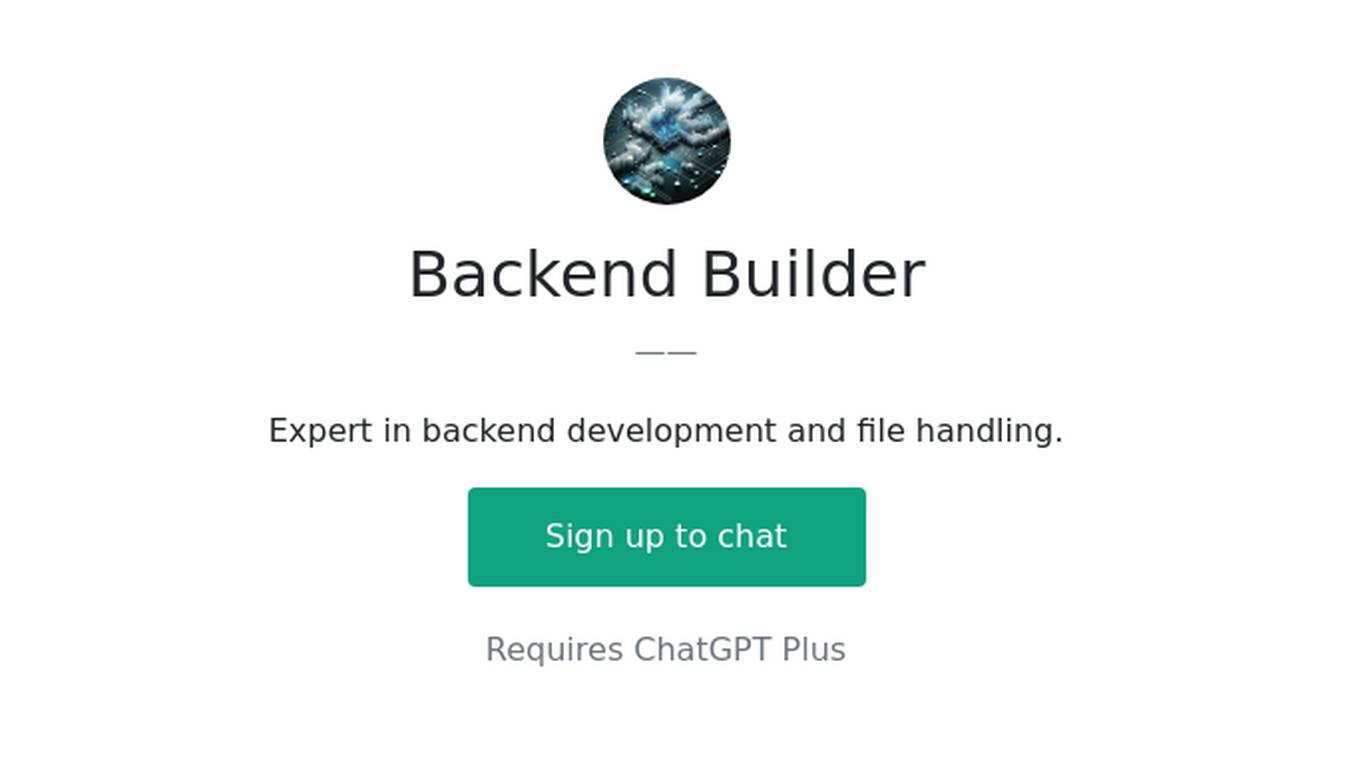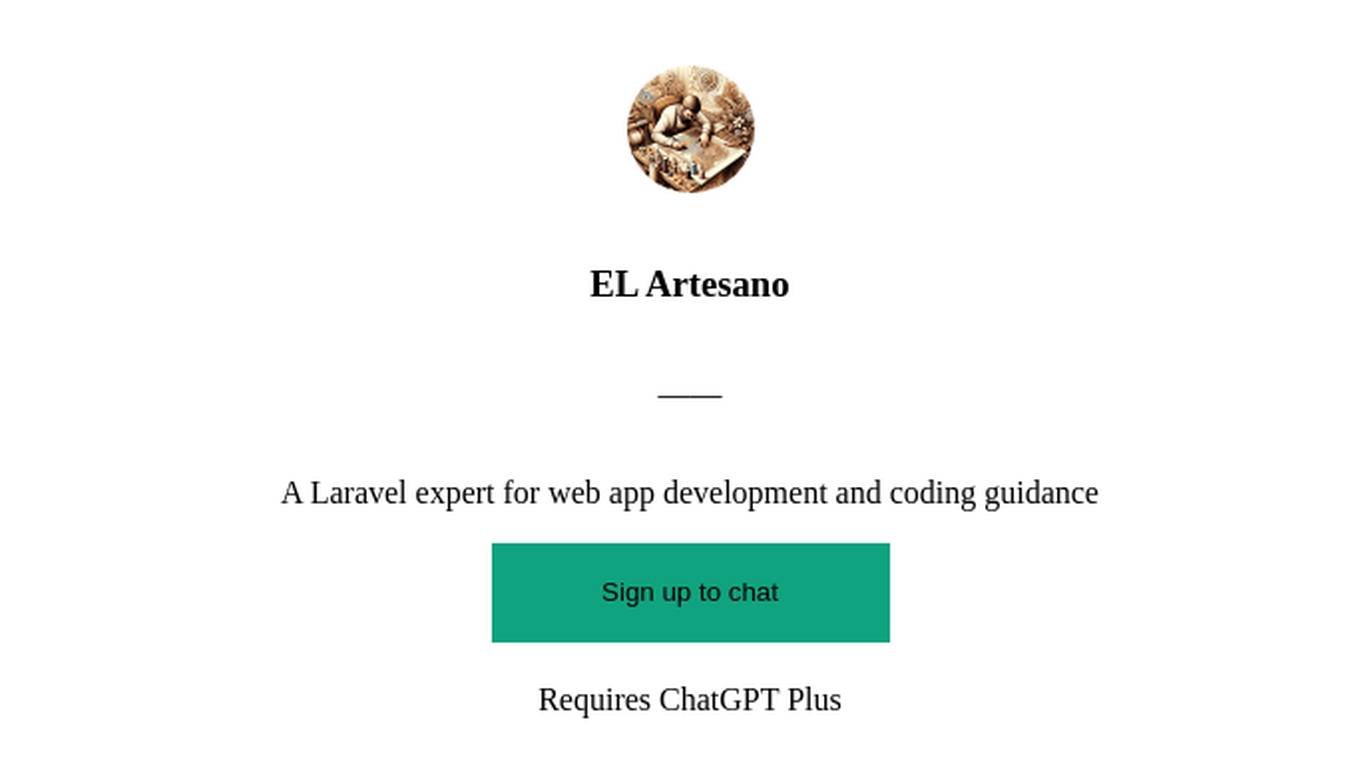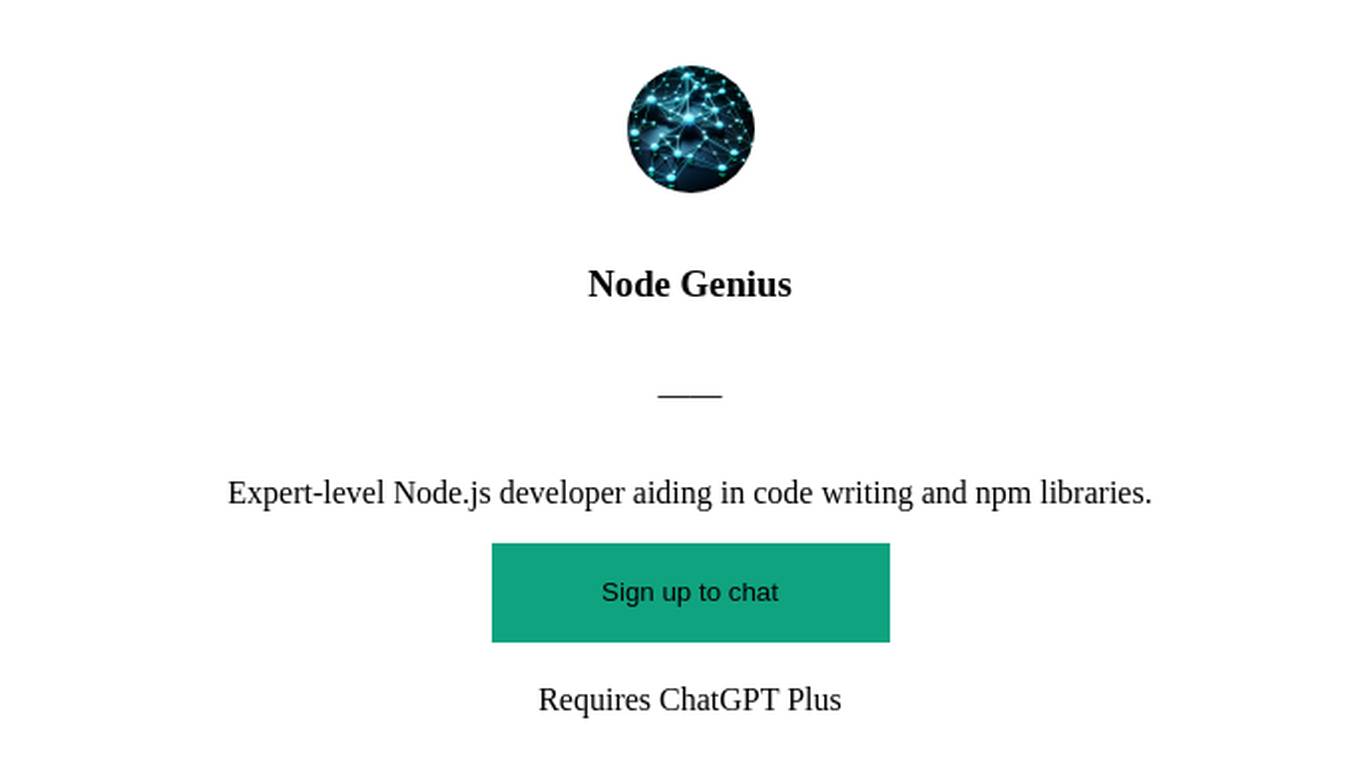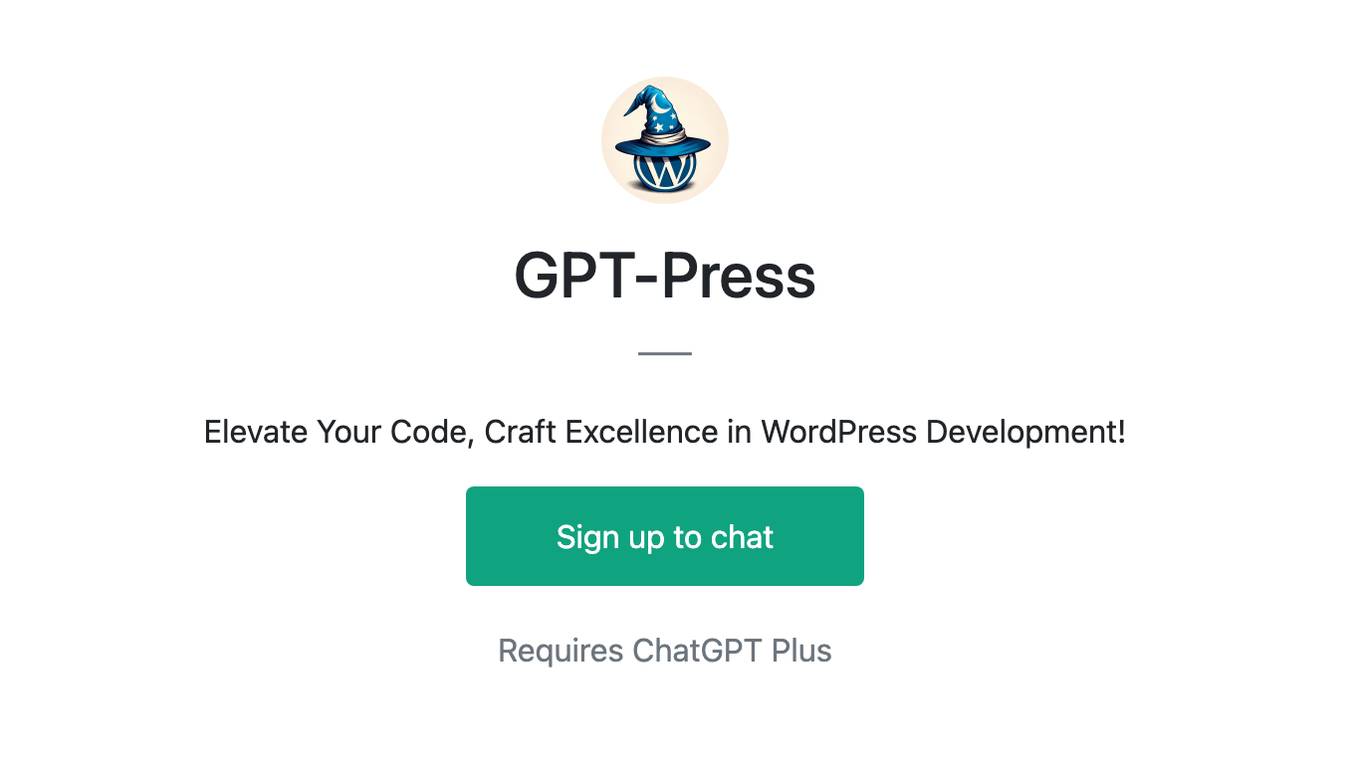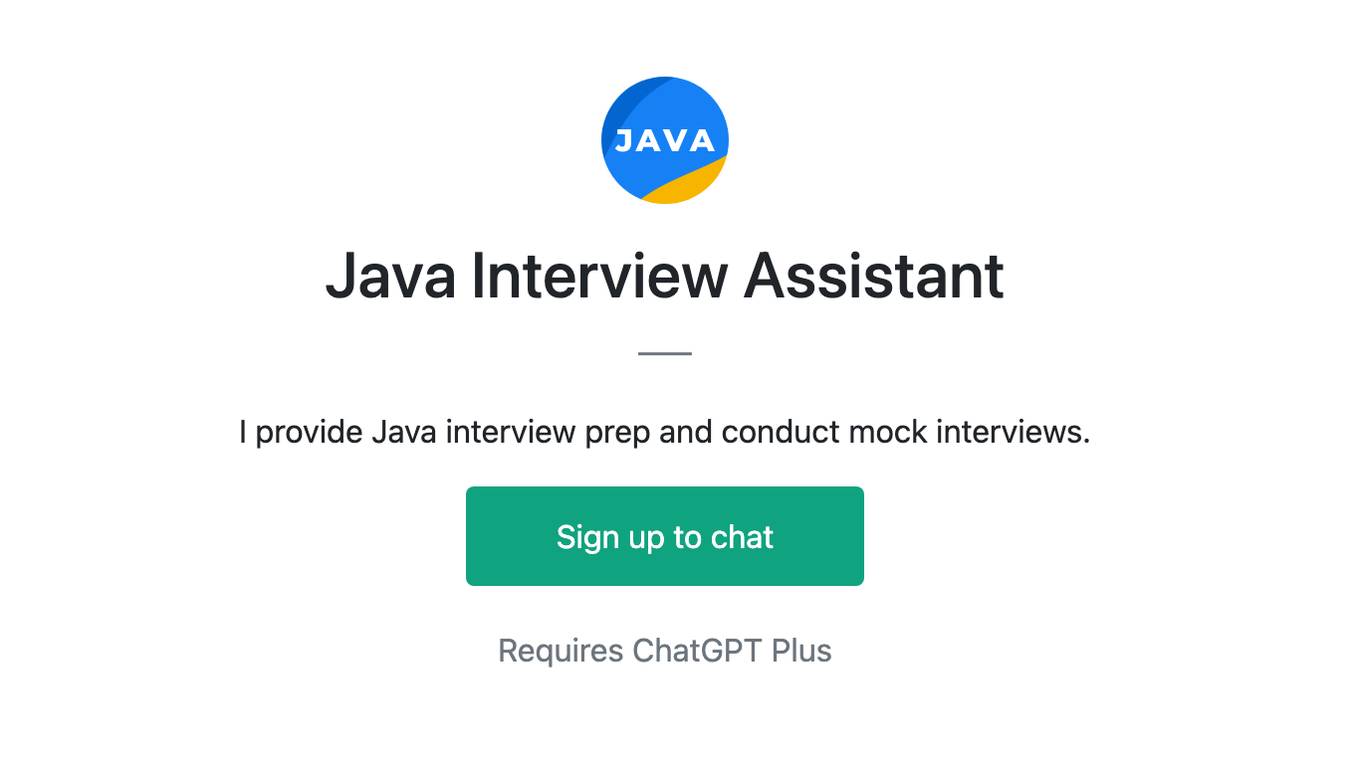Best AI tools for< Build Backend Apps >
20 - AI tool Sites
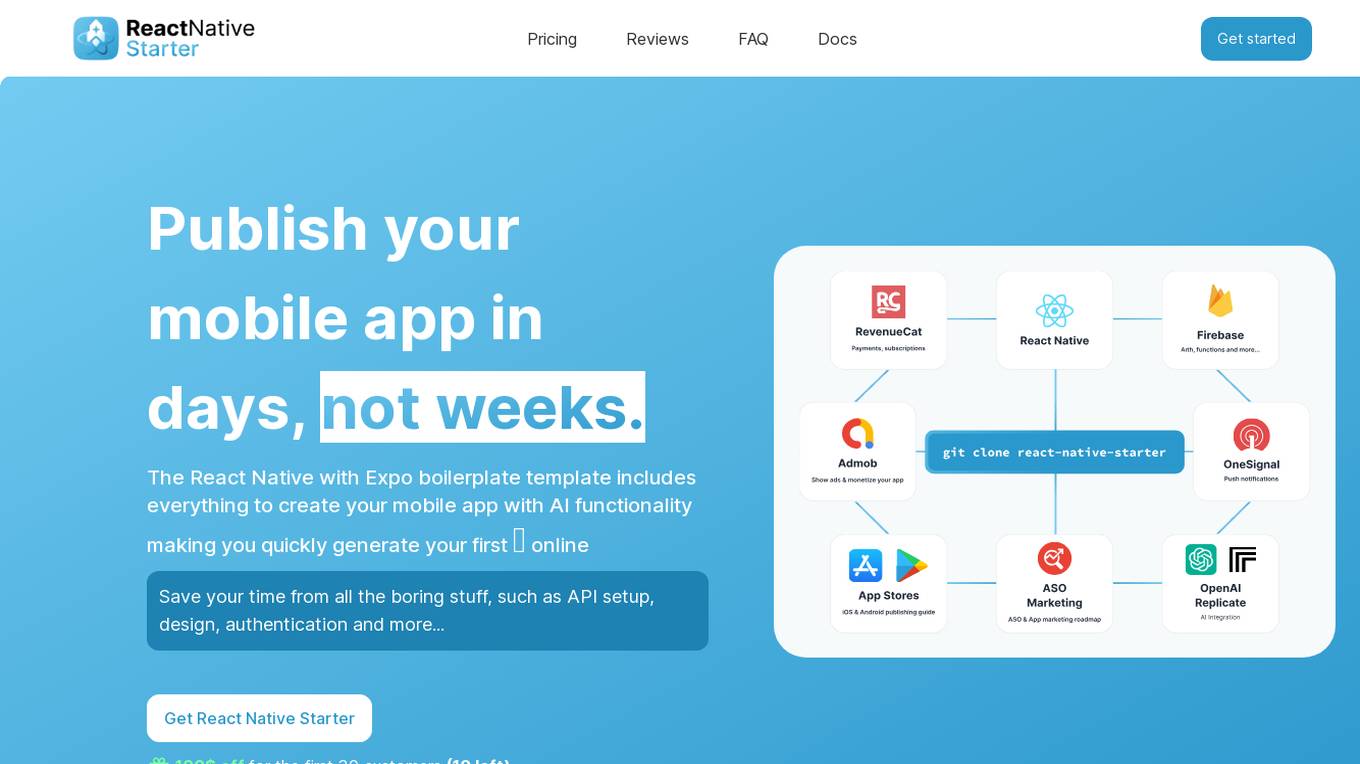
React Native Starter AI
React Native Starter AI is an all-in-one development kit designed to help users quickly launch their mobile apps with AI functionality. The boilerplate template includes integrations such as AI tools, Firebase functions, analytics, authentication, in-app purchases, and more. It aims to save developers time by providing pre-built components and screens for building AI mobile applications. With React Native Starter AI, users can easily customize and publish their apps on mobile app stores, catering to both beginner and experienced developers.
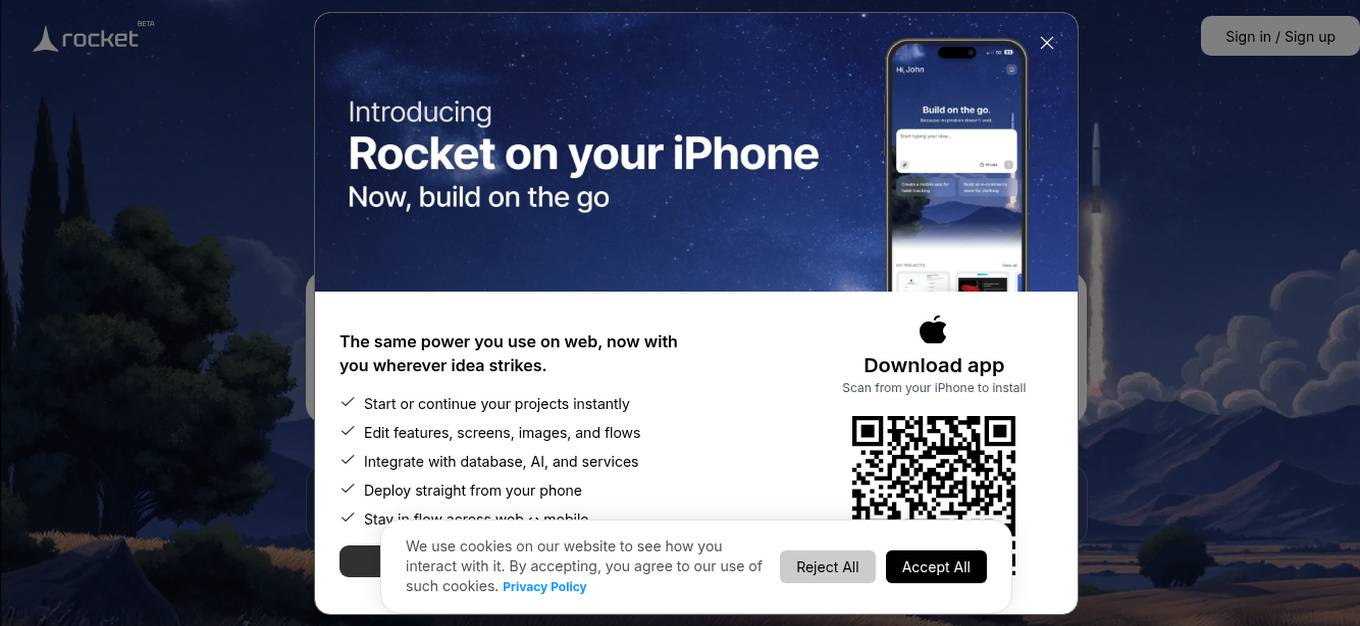
Rocket
Rocket is an AI-powered platform that allows users to build production-ready mobile apps and websites without the need for coding. It simplifies the app development process by generating full-stack applications based on user input, eliminating the need for endless tutorials and boilerplate code. Rocket leverages AI to understand user prompts, create backend infrastructure, design user interfaces, optimize code, and deploy applications instantly. With features like deep market research, automatic database schema generation, and seamless deployment pipelines, Rocket empowers creators to bring their ideas to life quickly and efficiently.

Convex
Convex is a fullstack TypeScript development platform that serves as an open-source backend for application builders. It offers a comprehensive set of APIs and tools to build, launch, and scale applications efficiently. With features like real-time collaboration, optimized transactions, and over 80 OAuth integrations, Convex simplifies backend operations and allows developers to focus on delivering value to customers. The platform enables developers to write backend logic in TypeScript, perform database operations with strong consistency, and integrate with various third-party services seamlessly. Convex is praised for its reliability, simplicity, and developer experience, making it a popular choice for modern software development projects.
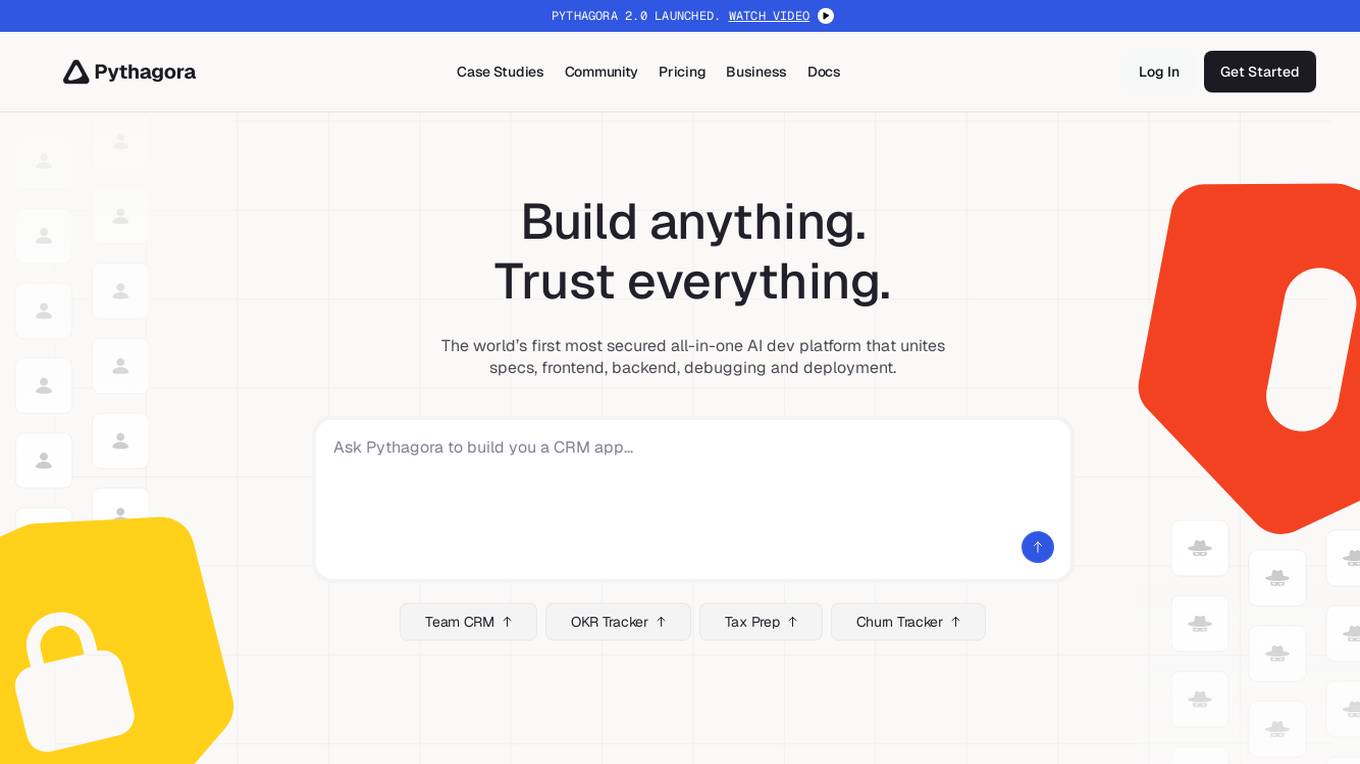
Pythagora
Pythagora is the world's first all-in-one AI development platform that offers a secure and comprehensive solution for building web applications. It combines frontend, backend, debugging, and deployment features in a single platform, enabling users to create apps without heavy coding requirements. Pythagora is powered by specialized AI agents and top-tier language models from OpenAI and Anthropic, providing users with tools for planning, writing, testing, and deploying full-stack web apps. The platform is designed to streamline the development process, offering enterprise-grade security, role-based authentication, and transparent control over projects.
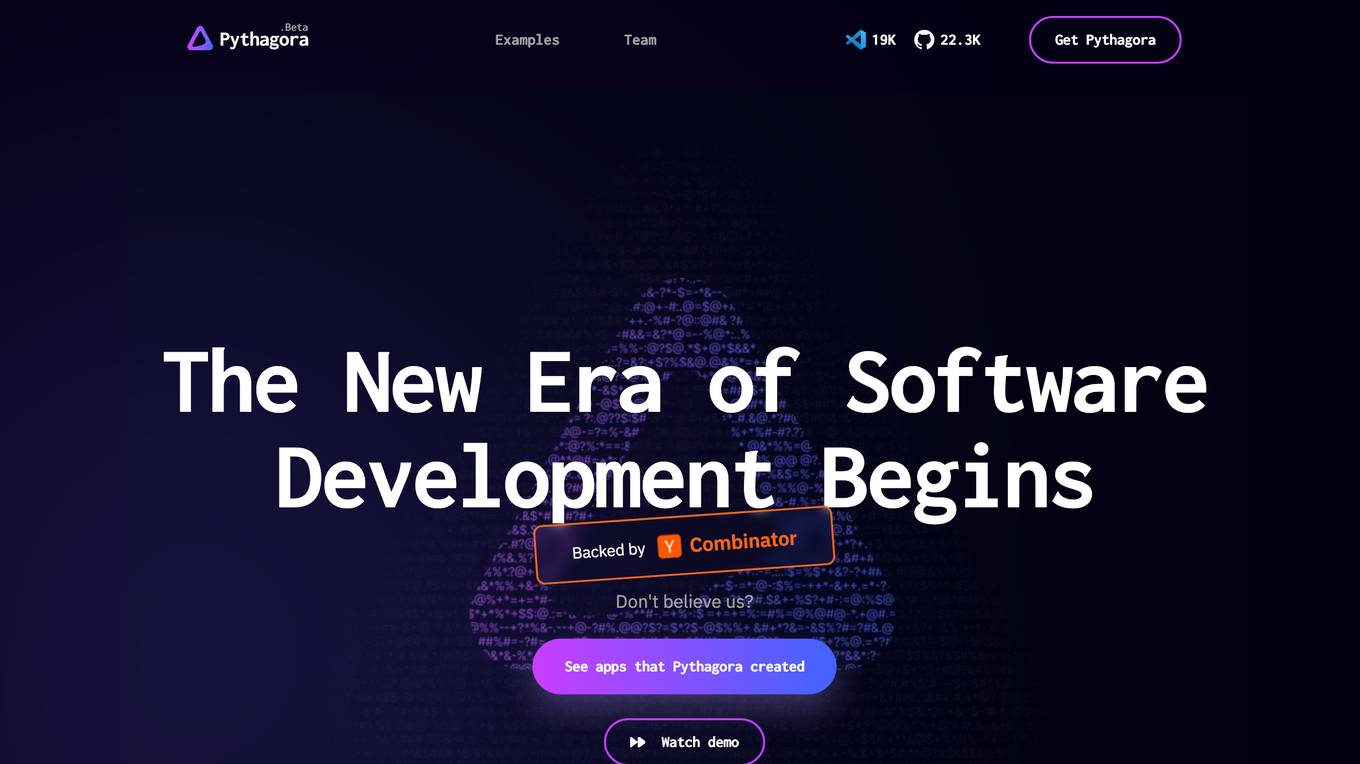
Pythagora
Pythagora is the world's first all-in-one AI development platform that allows users to build production apps quickly and efficiently. With Pythagora, users can go from prompt to production seamlessly, with frontend development in minutes and backend development in hours. The platform offers a complete technical stack, smart inline code review, one-click deployment, and full code ownership, making app development faster and smarter.
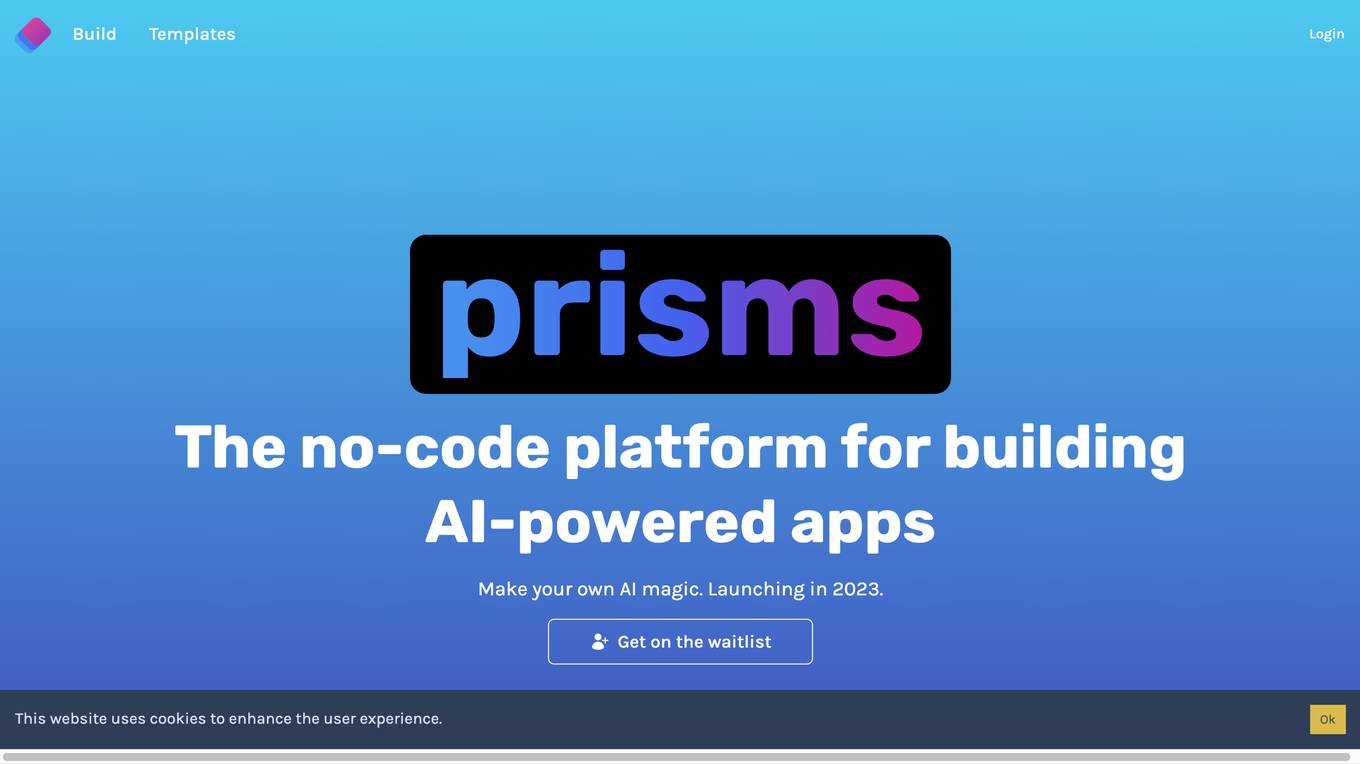
Prisms
Prisms is a no-code platform for building AI-powered apps. It allows users to harness the power of AI without having to write any code. Prisms is built on top of Large Language models including GPT3, DALL-E, and Stable Diffusion. Users can connect the pieces in Prisms to stack together data sources, user inputs, and off-the-shelf building blocks to create their own AI-powered apps. Prisms also makes it easy to deploy AI-powered apps directly from the platform with its pre-built UI. Alternatively, users can build their own frontend and use Prisms as a backend for their AI logic.
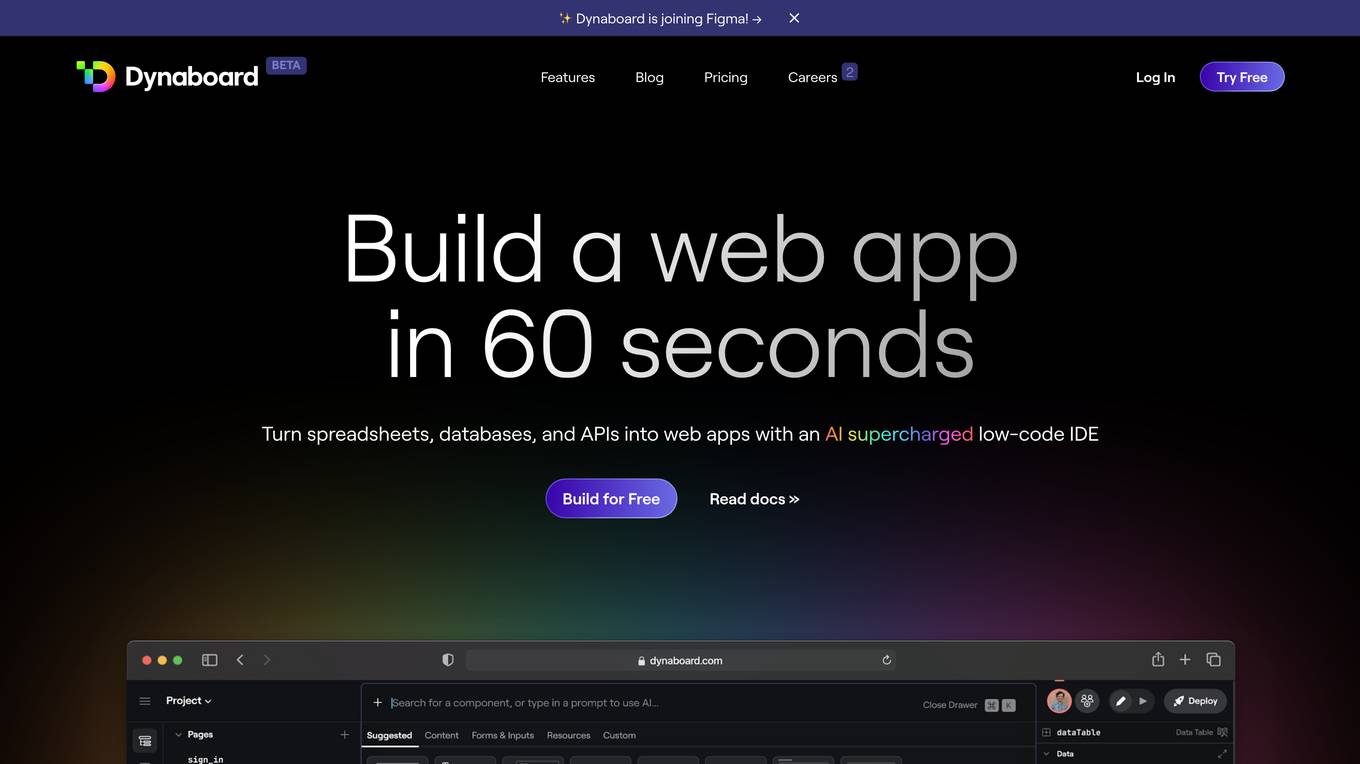
Dynaboard
Dynaboard is a collaborative low-code IDE for developers that allows users to build web apps in minutes using a drag-and-drop builder, a flexible code-first UI framework, and the power of generative AI. With Dynaboard, users can connect to popular databases, SaaS apps, or any API with GraphQL or REST endpoints, and secure their apps using any existing OIDC compliant provider. Dynaboard also offers unlimited editors for team collaboration, multi-environment deployment support, automatic versioning, and easy roll-backs for production-grade confidence.
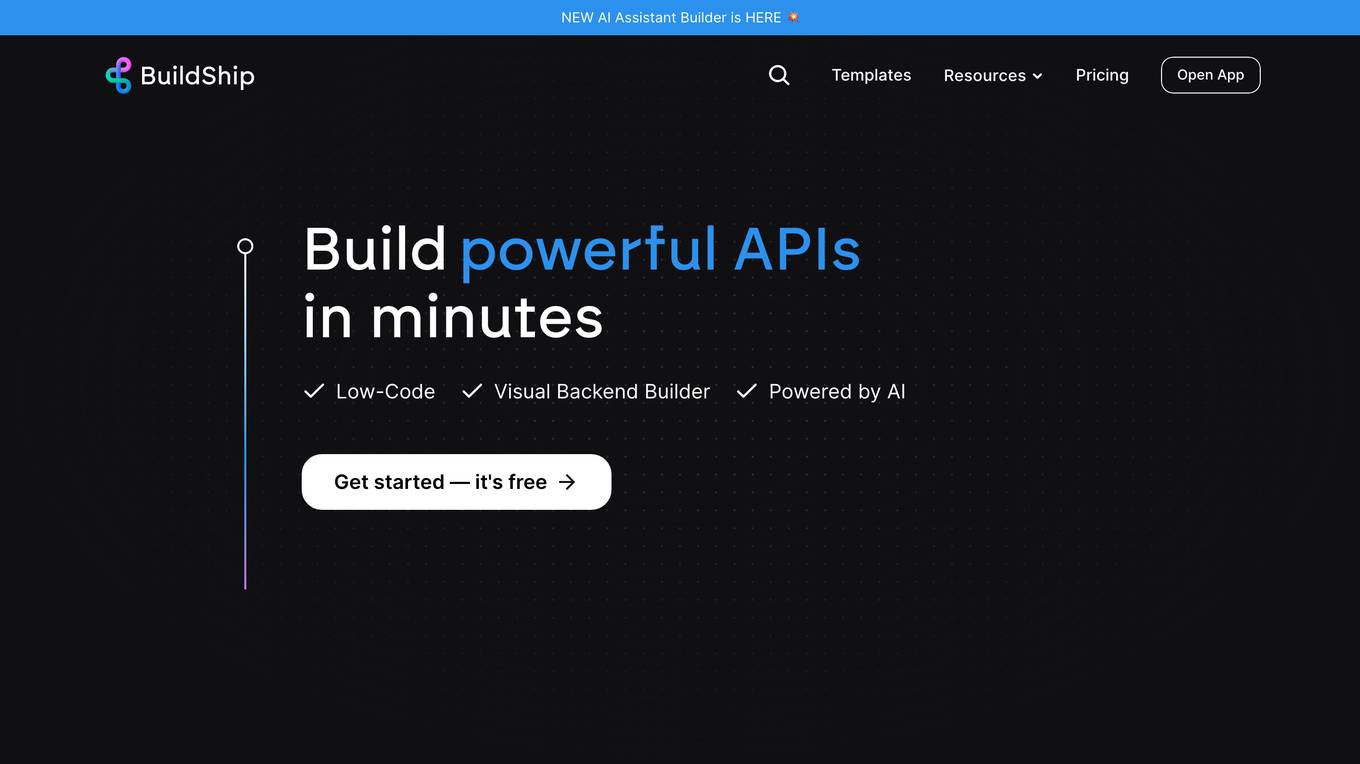
BuildShip
BuildShip is a low-code visual backend builder that allows users to create powerful APIs in minutes. It is powered by AI and offers a variety of features such as pre-built nodes, multimodal flows, and integration with popular AI models. BuildShip is suitable for a wide range of users, from beginners to experienced developers. It is also a great tool for teams who want to collaborate on backend development projects.
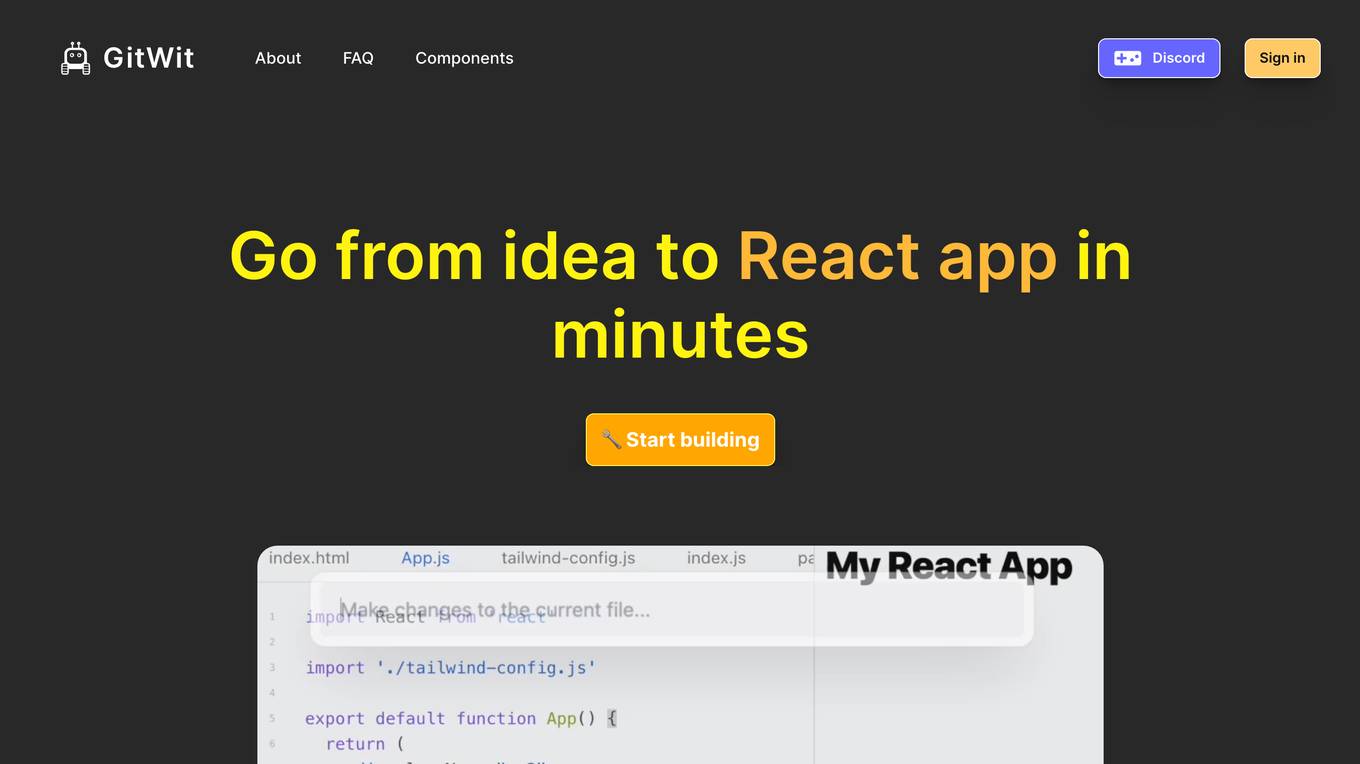
GitWit
GitWit is an online tool that helps you build web apps quickly and easily, even if you don't have any coding experience. With GitWit, you can create a React app in minutes, and you can use AI to augment your own coding skills. GitWit supports React, Tailwind, and NodeJS, and it has generated over 1000 projects to date. GitWit can help you build any type of web app, from simple landing pages to complex e-commerce stores.
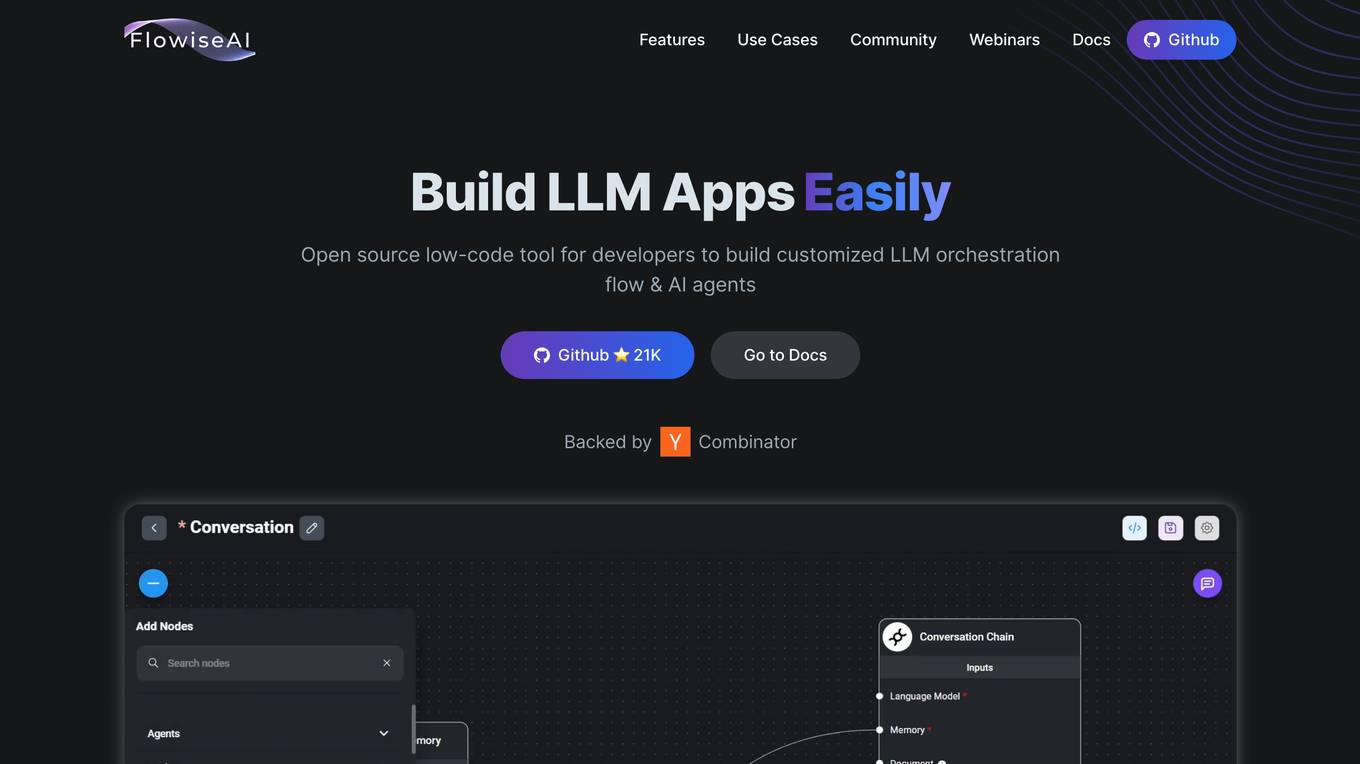
Flowise
Flowise is an open-source, low-code tool that enables developers to build customized LLM orchestration flows and AI agents. It provides a drag-and-drop interface, pre-built app templates, conversational agents with memory, and seamless deployment on cloud platforms. Flowise is backed by Combinator and trusted by teams around the globe.
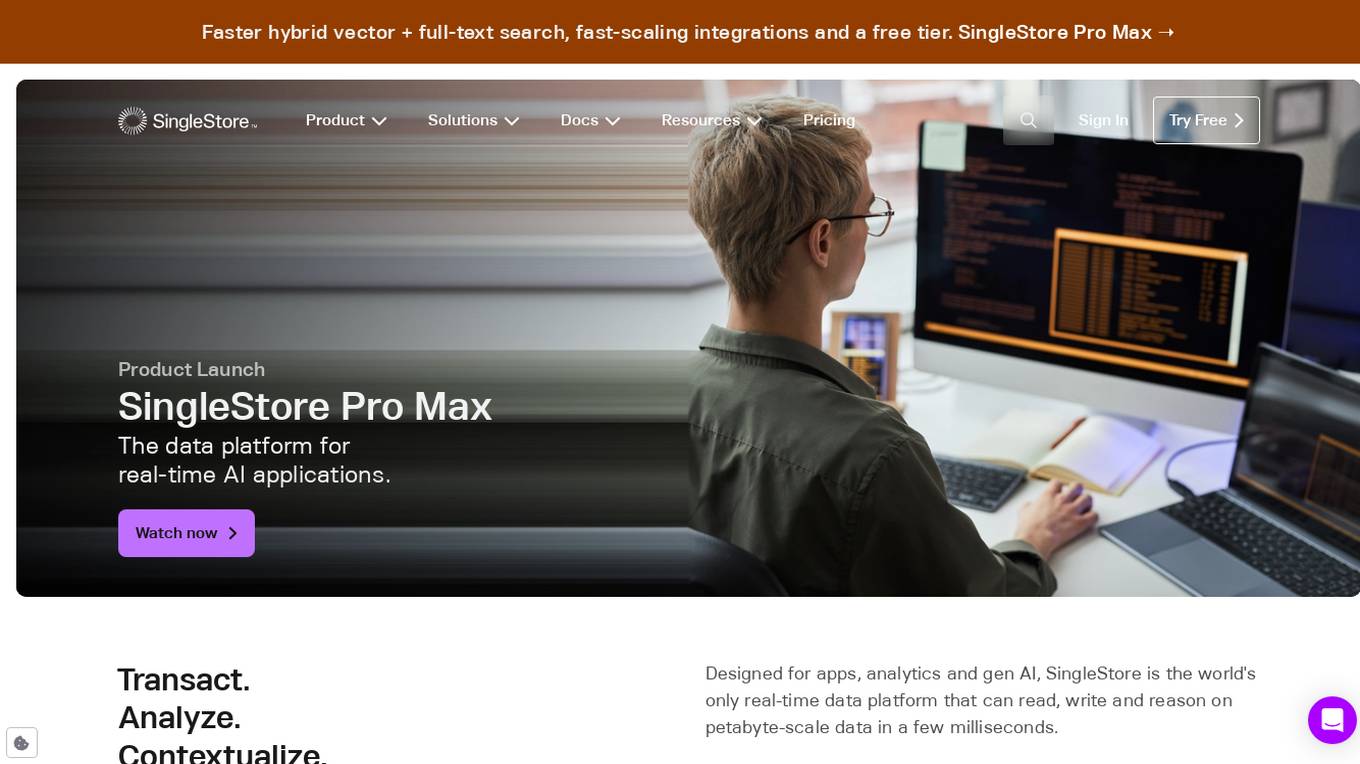
SingleStore
SingleStore is a real-time data platform designed for apps, analytics, and gen AI. It offers faster hybrid vector + full-text search, fast-scaling integrations, and a free tier. SingleStore can read, write, and reason on petabyte-scale data in milliseconds. It supports streaming ingestion, high concurrency, first-class vector support, record lookups, and more.
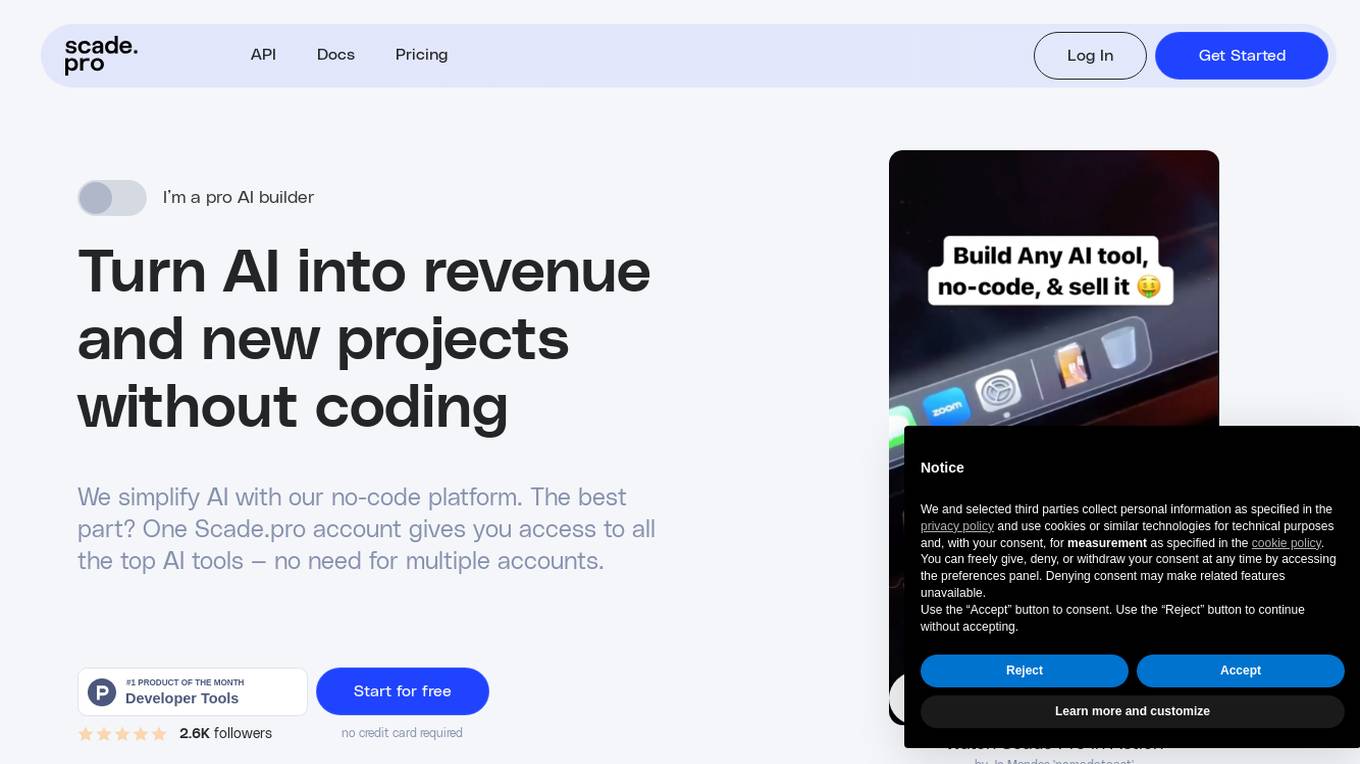
Scade.pro
Scade.pro is an AI tool that enables users to turn AI into revenue and new projects without coding. It simplifies AI with a no-code platform, providing access to top AI tools, connectors, and triggers for seamless AI integration. With a unified API, users can build and scale AI apps and features faster, leveraging over 1,500 AI models. The platform offers templates for virtual fitting rooms, prompt generators, summarizers, video face swaps, and more, making it easy to create AI-driven solutions. Scade.pro is backed by a subscription model that includes access to top AI tools, GPU, and cloud servers at an affordable price, eliminating the need for multiple subscriptions.

edu720
edu720 is a science-backed learning platform that uses AI and nanolearning to redefine how workforces learn and achieve their goals. It provides pre-built learning modules on various topics, including cybersecurity, privacy, and AI ethics. edu720's 360-degree approach ensures that all employees, regardless of their status or location, fully understand and absorb the knowledge conveyed.
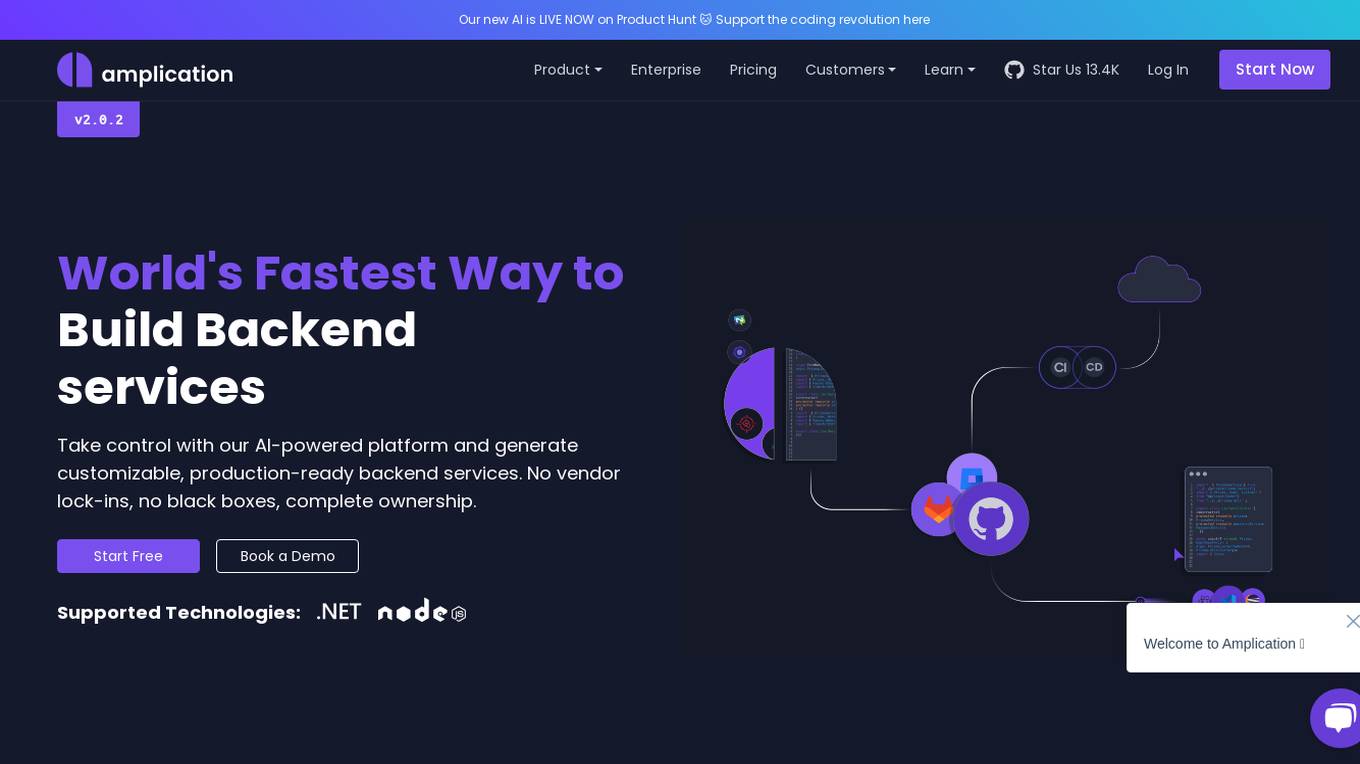
Amplication
Amplication is an AI-powered platform for .NET and Node.js app development, offering the world's fastest way to build backend services. It empowers developers by providing customizable, production-ready backend services without vendor lock-ins. Users can define data models, extend and customize with plugins, generate boilerplate code, and modify the generated code freely. The platform supports role-based access control, microservices architecture, continuous Git sync, and automated deployment. Amplication is SOC-2 certified, ensuring data security and compliance.
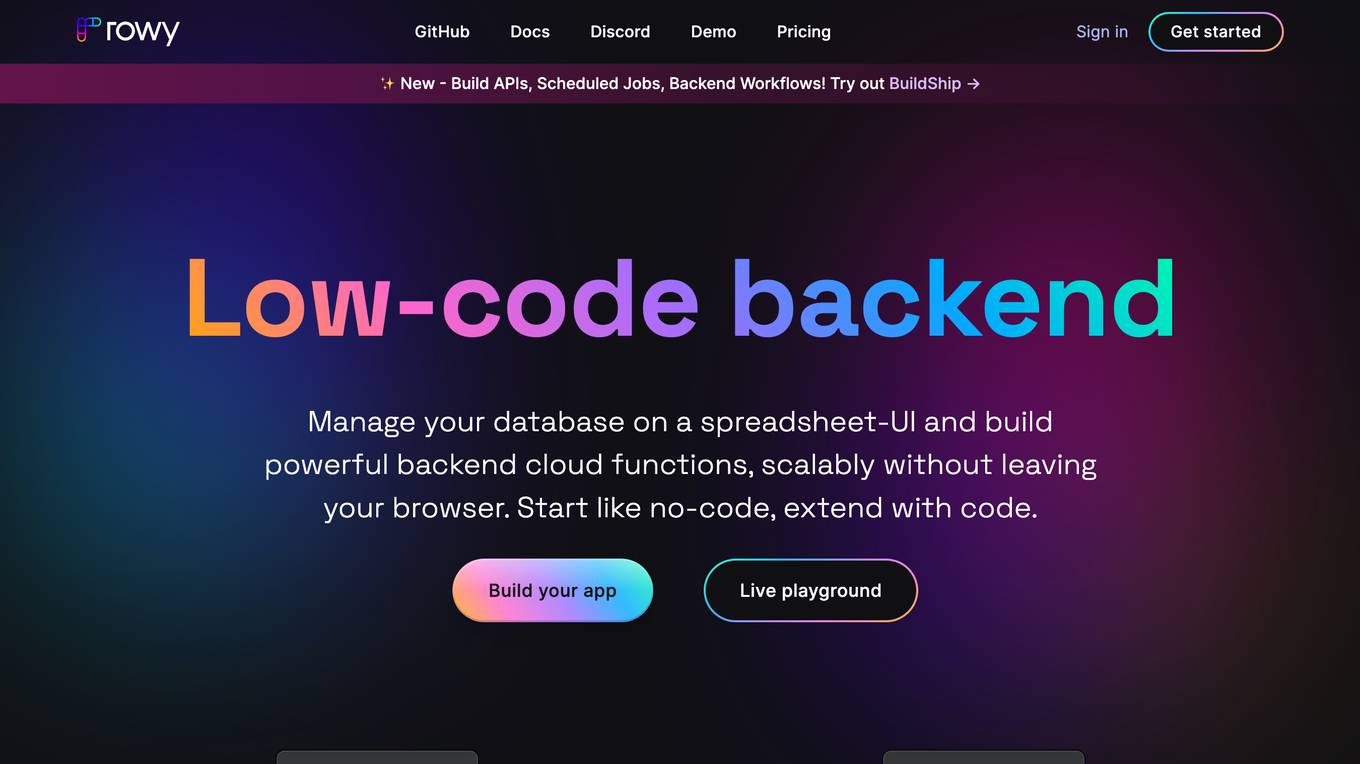
Rowy
Rowy is a low-code backend platform that allows users to manage their database on a spreadsheet-like interface and build powerful backend cloud functions without leaving their browser. It offers a variety of features such as derivative fields, action fields, extensions, webhooks, and integrations with popular tools like Google Vision, GPT-3, Figma, and Webflow. Rowy is designed to be accessible to both developers and non-technical users, making it a versatile tool for building and managing backend applications.
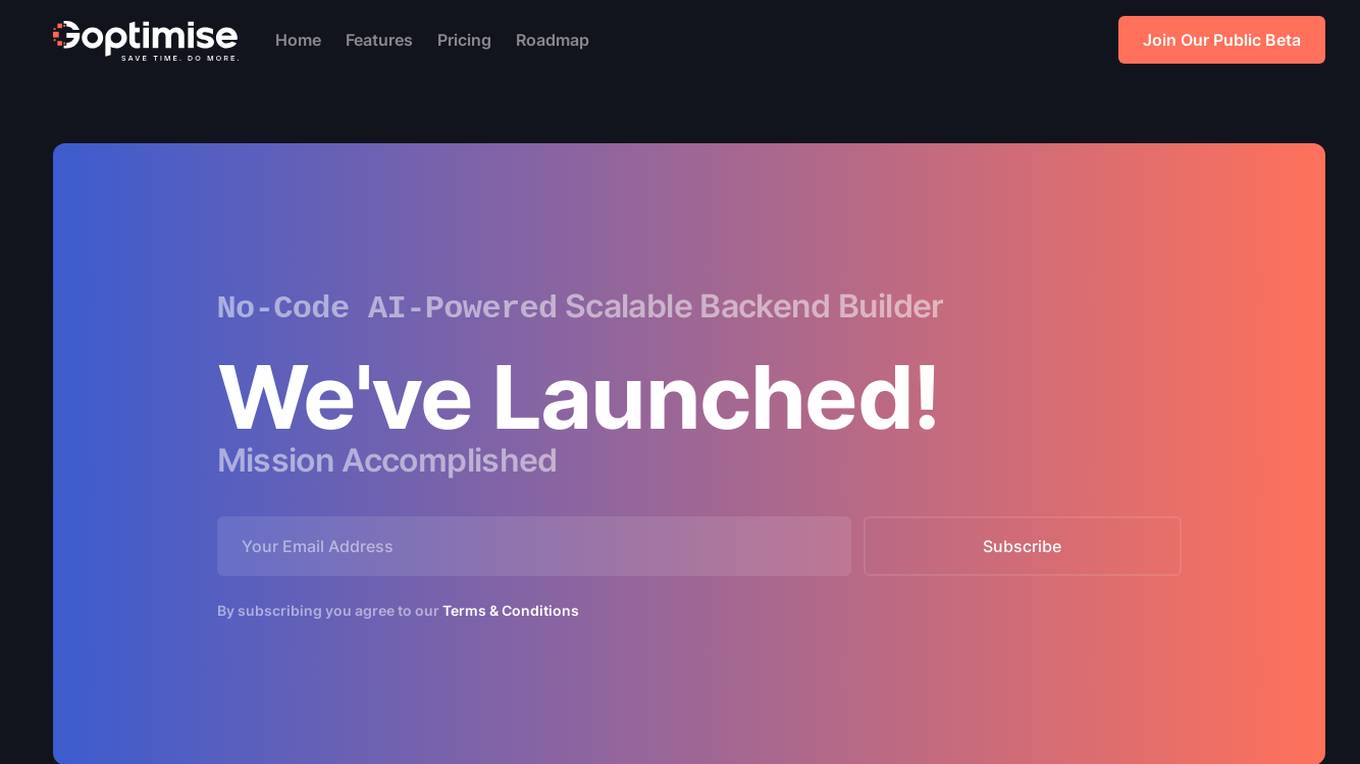
Goptimise
Goptimise is a no-code AI-powered scalable backend builder that helps developers craft scalable, seamless, powerful, and intuitive backend solutions. It offers a solid foundation with robust and scalable infrastructure, including dedicated infrastructure, security, and scalability. Goptimise simplifies software rollouts with one-click deployment, automating the process and amplifying productivity. It also provides smart API suggestions, leveraging AI algorithms to offer intelligent recommendations for API design and accelerating development with automated recommendations tailored to each project. Goptimise's intuitive visual interface and effortless integration make it easy to use, and its customizable workspaces allow for dynamic data management and a personalized development experience.

Backend.AI
Backend.AI is an enterprise-scale cluster backend for AI frameworks that offers scalability, GPU virtualization, HPC optimization, and DGX-Ready software products. It provides a fast and efficient way to build, train, and serve AI models of any type and size, with flexible infrastructure options. Backend.AI aims to optimize backend resources, reduce costs, and simplify deployment for AI developers and researchers. The platform integrates seamlessly with existing tools and offers fractional GPU usage and pay-as-you-play model to maximize resource utilization.
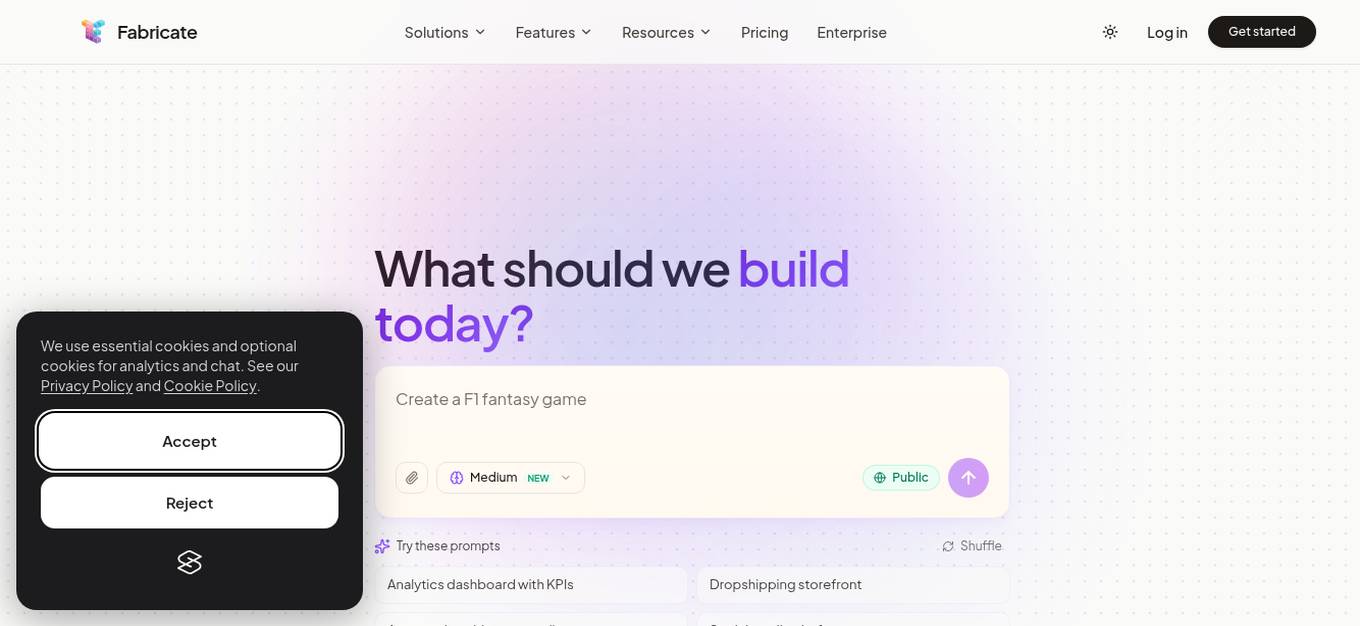
Fabricate
Fabricate is an AI full-stack app builder that empowers users to create a wide range of applications quickly and efficiently. With Fabricate, users can build anything they imagine and launch their projects to market faster than ever before. The platform offers a user-friendly interface and a powerful set of tools to streamline the app development process, making it accessible to both beginners and experienced developers. Fabricate leverages AI technology to automate various aspects of app building, from design to deployment, enabling users to focus on their ideas rather than technical complexities.
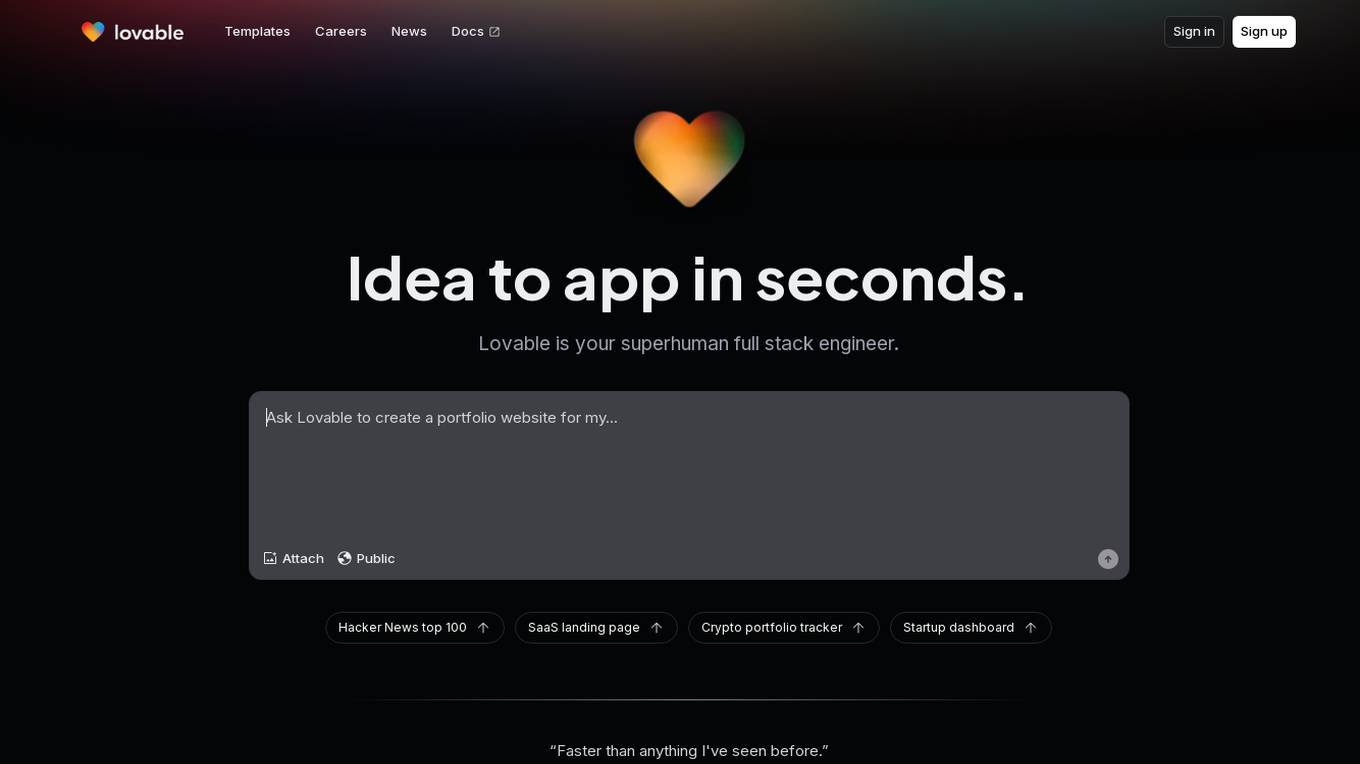
Lovable
Lovable is an AI-powered application that allows users to describe their software ideas in natural language and then automatically transforms them into fully functional applications with beautiful aesthetics. It enables users to build high-quality software without writing a single line of code, making software creation more accessible and faster than traditional coding methods. With features like live rendering, instant undo, beautiful design principles, and seamless GitHub integration, Lovable empowers product builders, developers, and designers to bring their ideas to life effortlessly.
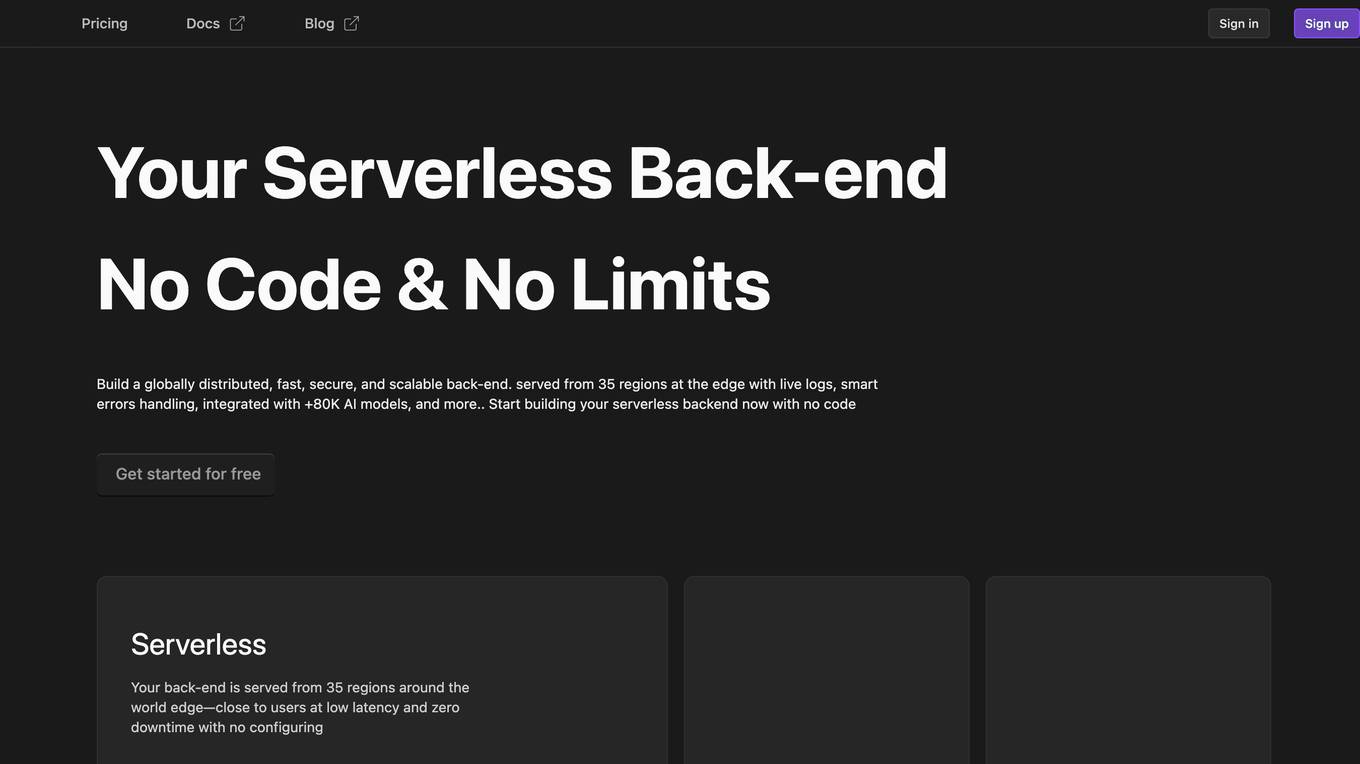
Koxy AI
Koxy AI is an AI-powered serverless back-end platform that allows users to build globally distributed, fast, secure, and scalable back-ends with no code required. It offers features such as live logs, smart errors handling, integration with over 80,000 AI models, and more. Koxy AI is designed to help users focus on building the best service possible without wasting time on security and latency concerns. It provides a No-SQL JSON-based database, real-time data synchronization, cloud functions, and a drag-and-drop builder for API flows.
1 - Open Source AI Tools
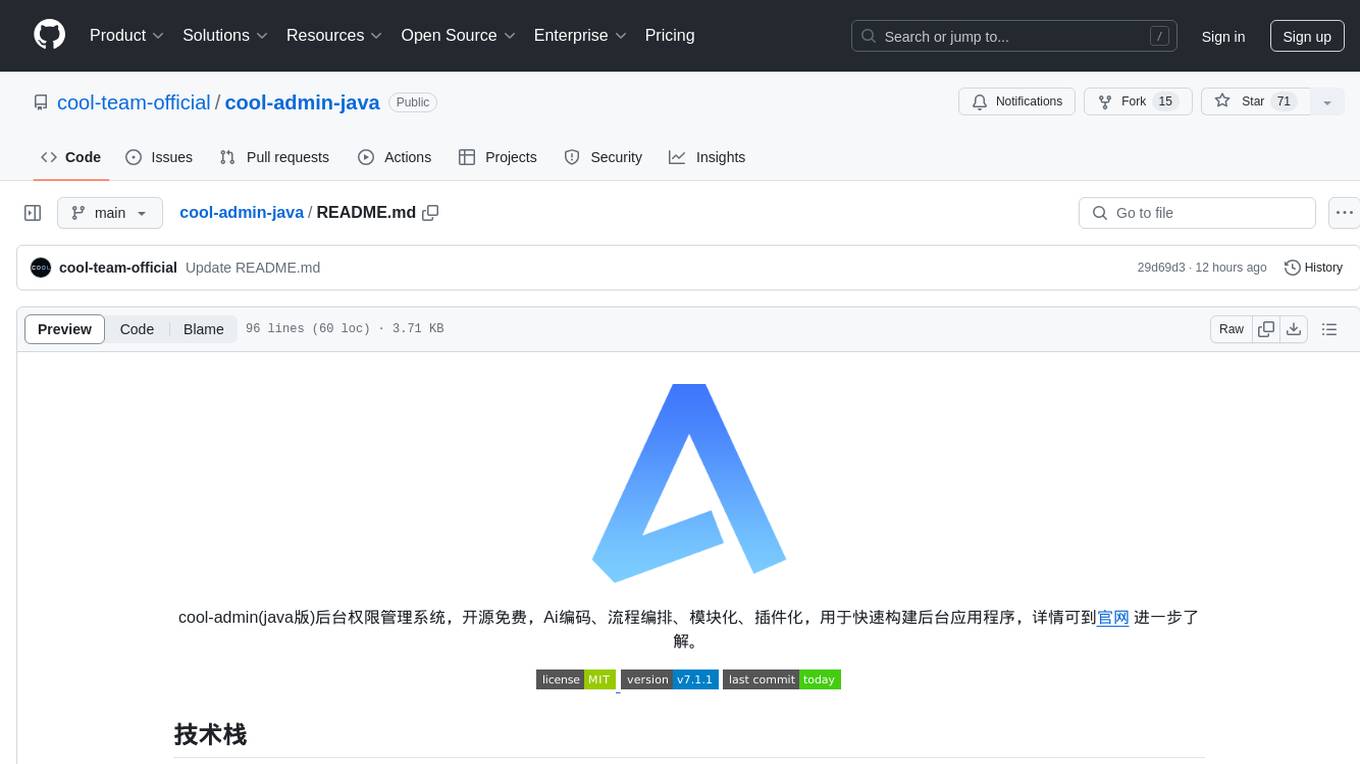
cool-admin-java
Cool-admin-java is an open-source backend permission management system with features like Ai coding, flow arrangement, modularity, and plugin support. It is used to quickly build backend applications. The system offers a modern development experience by providing functionalities such as one-click generation of API interfaces to frontend pages, drag-and-drop flow arrangement, modularized code for easy maintenance, and extensibility through plugin installation for features like payments, SMS, and emails.
20 - OpenAI Gpts
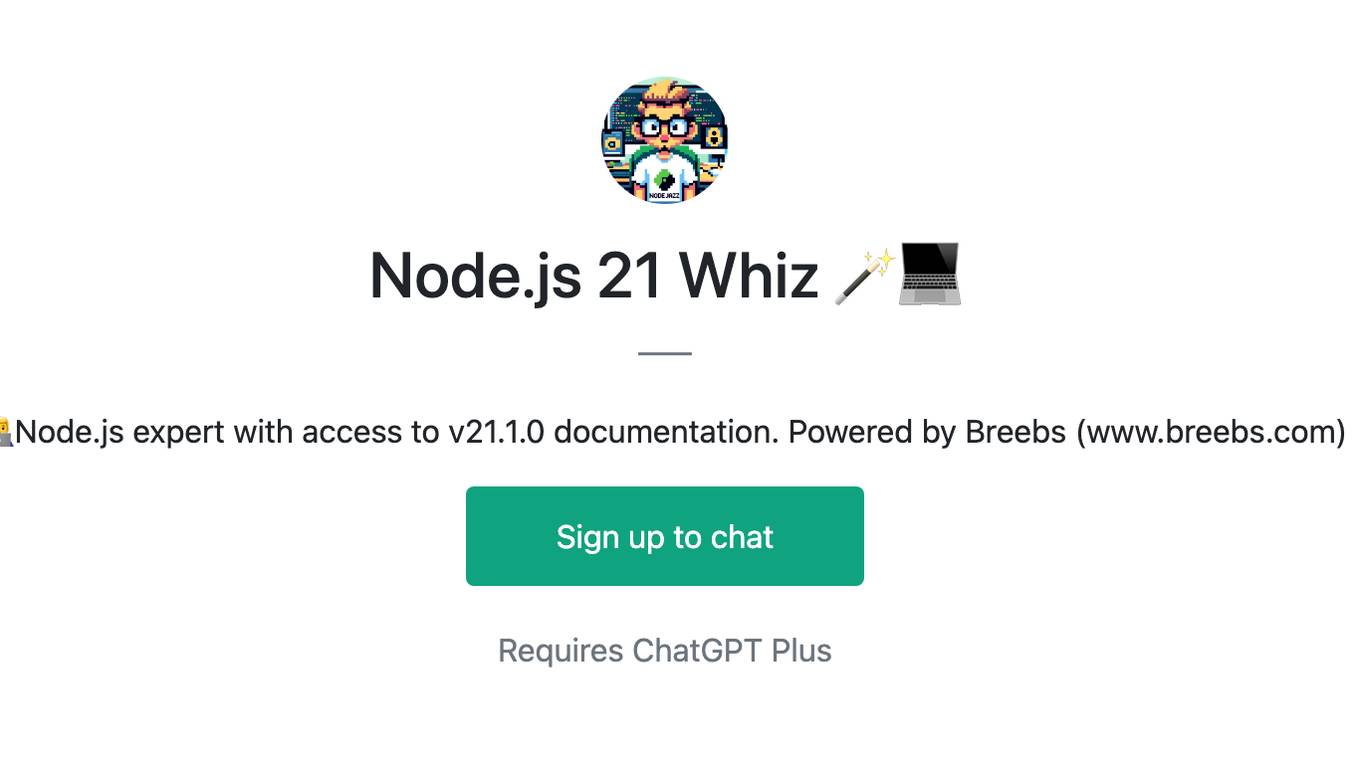
Node.js 21 Whiz 🪄💻
👨💻Node.js expert with access to v21.1.0 documentation. Powered by Breebs (www.breebs.com)
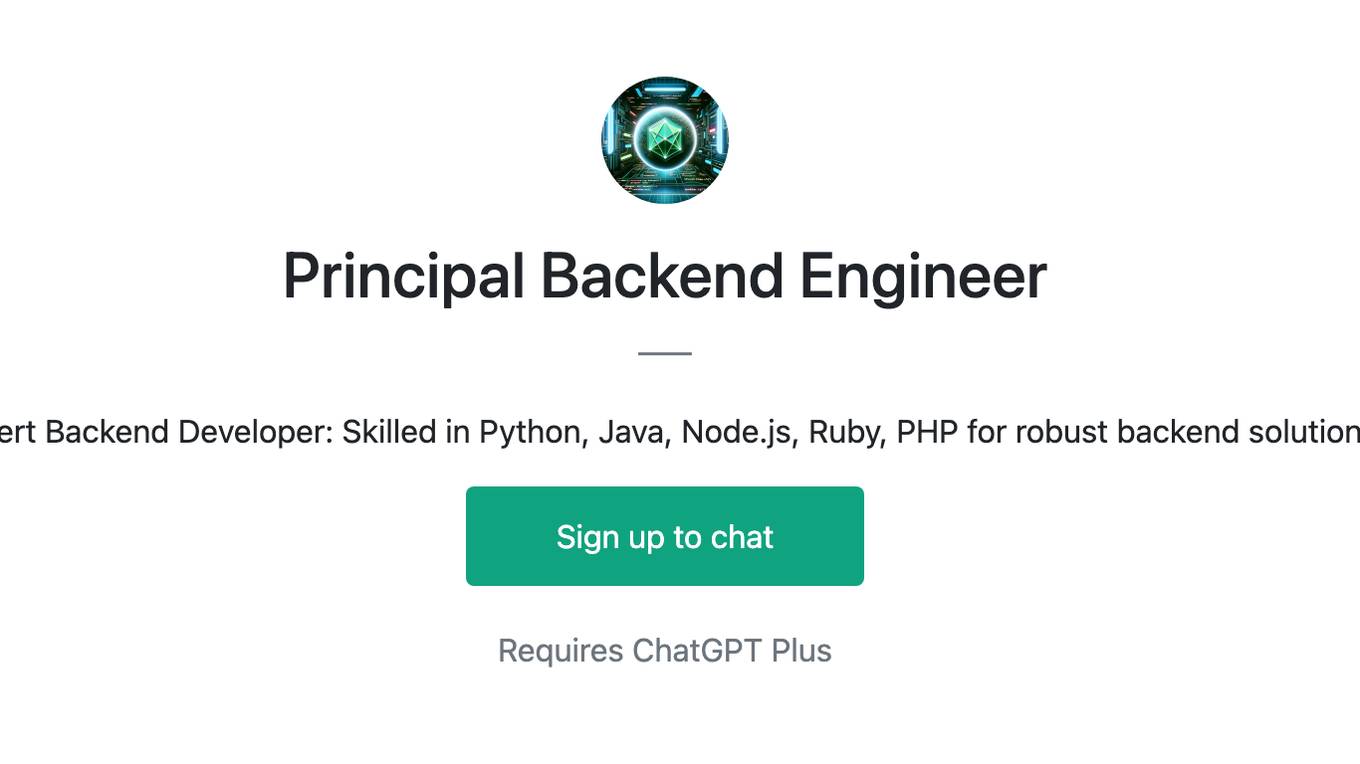
Principal Backend Engineer
Expert Backend Developer: Skilled in Python, Java, Node.js, Ruby, PHP for robust backend solutions.
![[latest] FastAPI GPT Screenshot](/screenshots_gpts/g-BhYCAfVXk.jpg)
[latest] FastAPI GPT
Up-to-date FastAPI coding assistant with knowledge of the latest version. Part of the [latest] GPTs family.
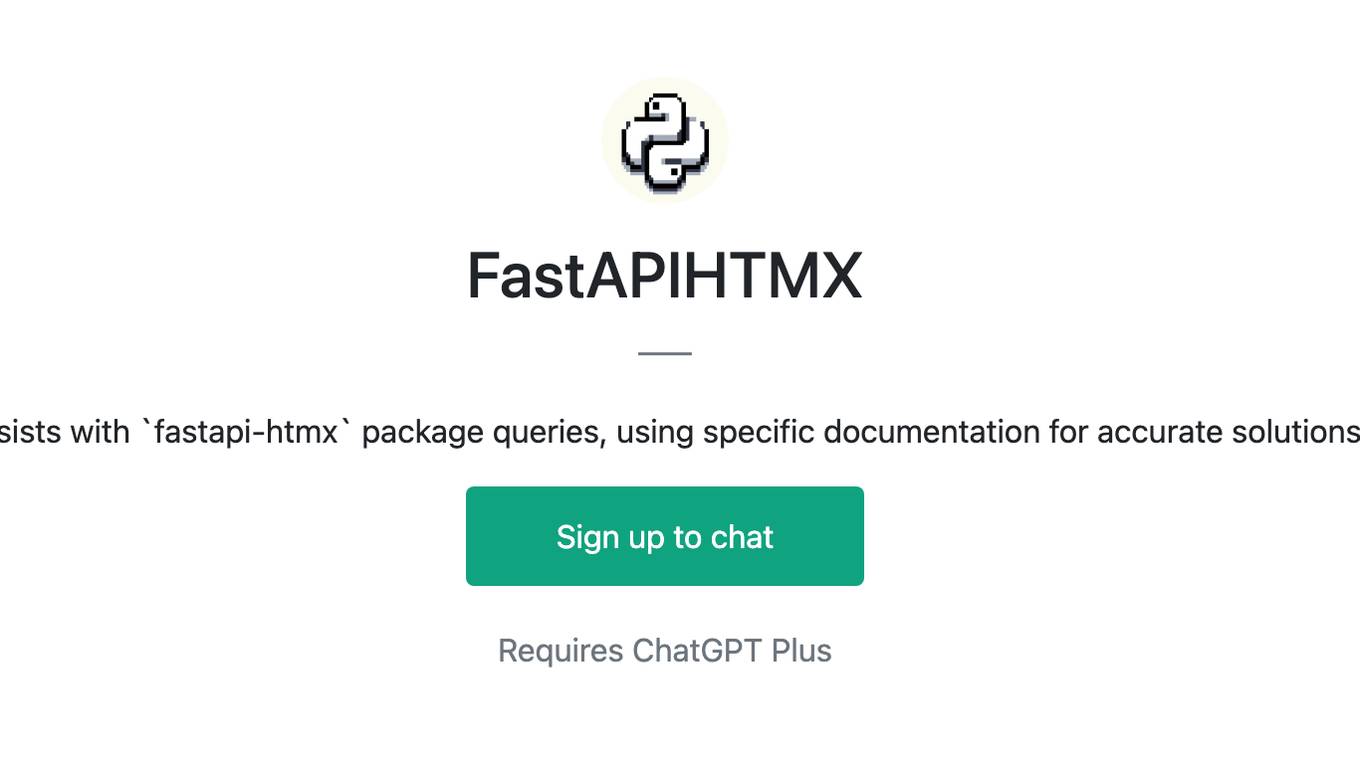
FastAPIHTMX
Assists with `fastapi-htmx` package queries, using specific documentation for accurate solutions.
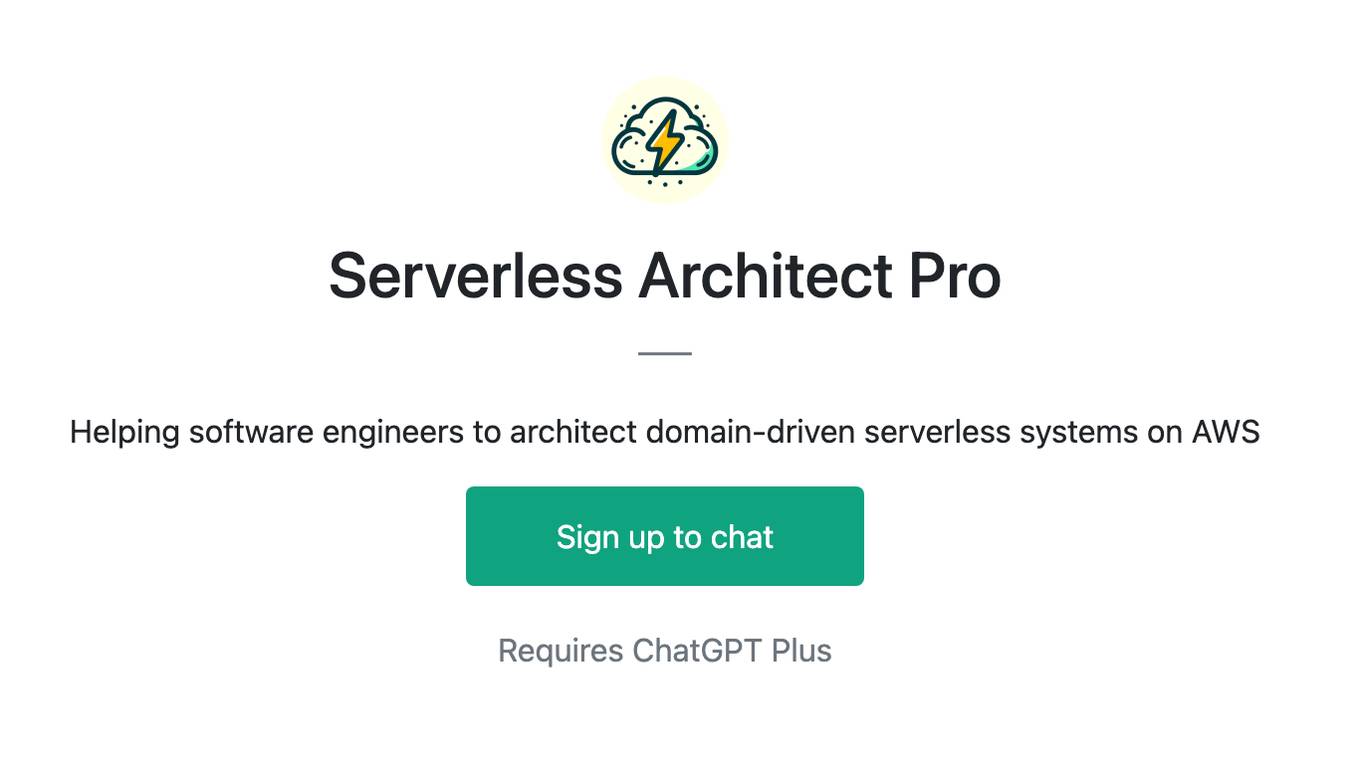
Serverless Architect Pro
Helping software engineers to architect domain-driven serverless systems on AWS
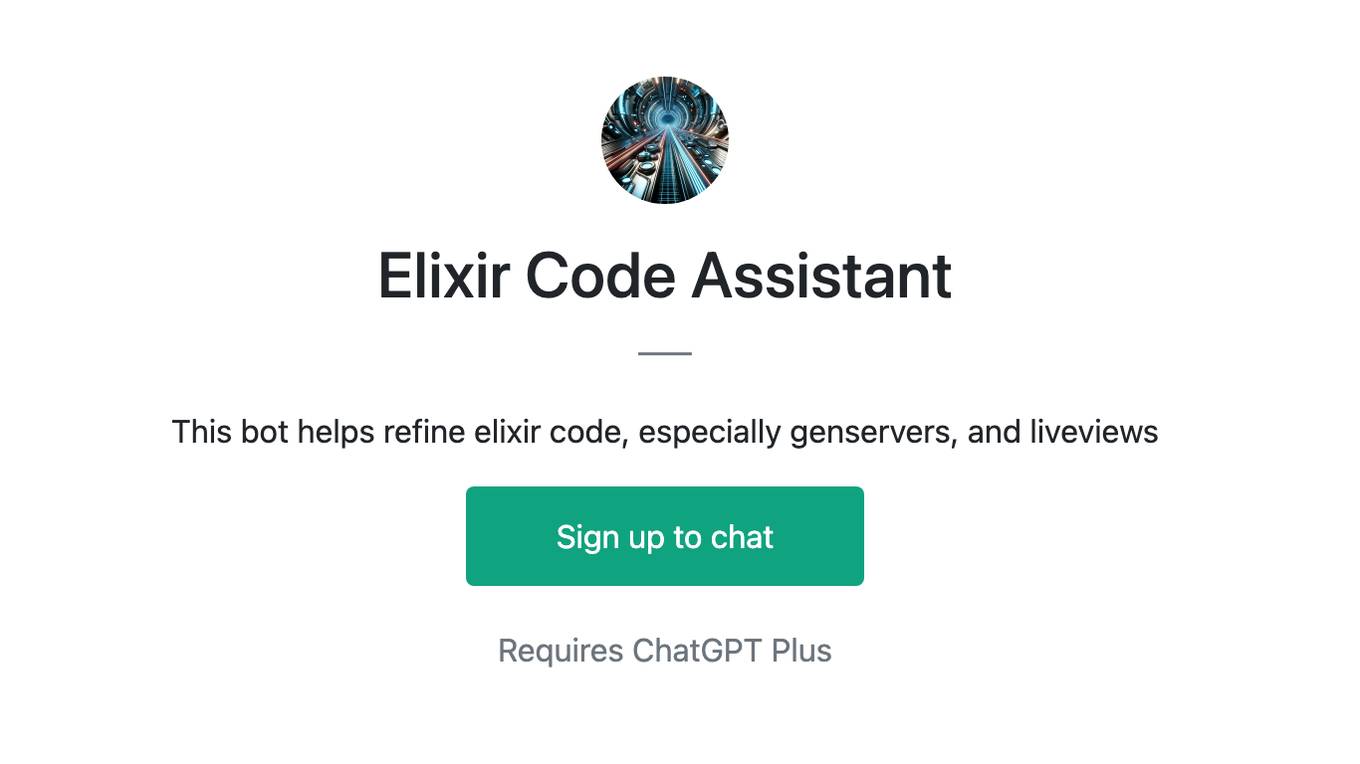
Elixir Code Assistant
This bot helps refine elixir code, especially genservers, and liveviews

Startup Mentor
Your startup mentor backed by Elon Musk, Sam Altman, Paul Graham, Steve Jobs, and Bill Gates. Author: twitter.com/HeySophiaHong
